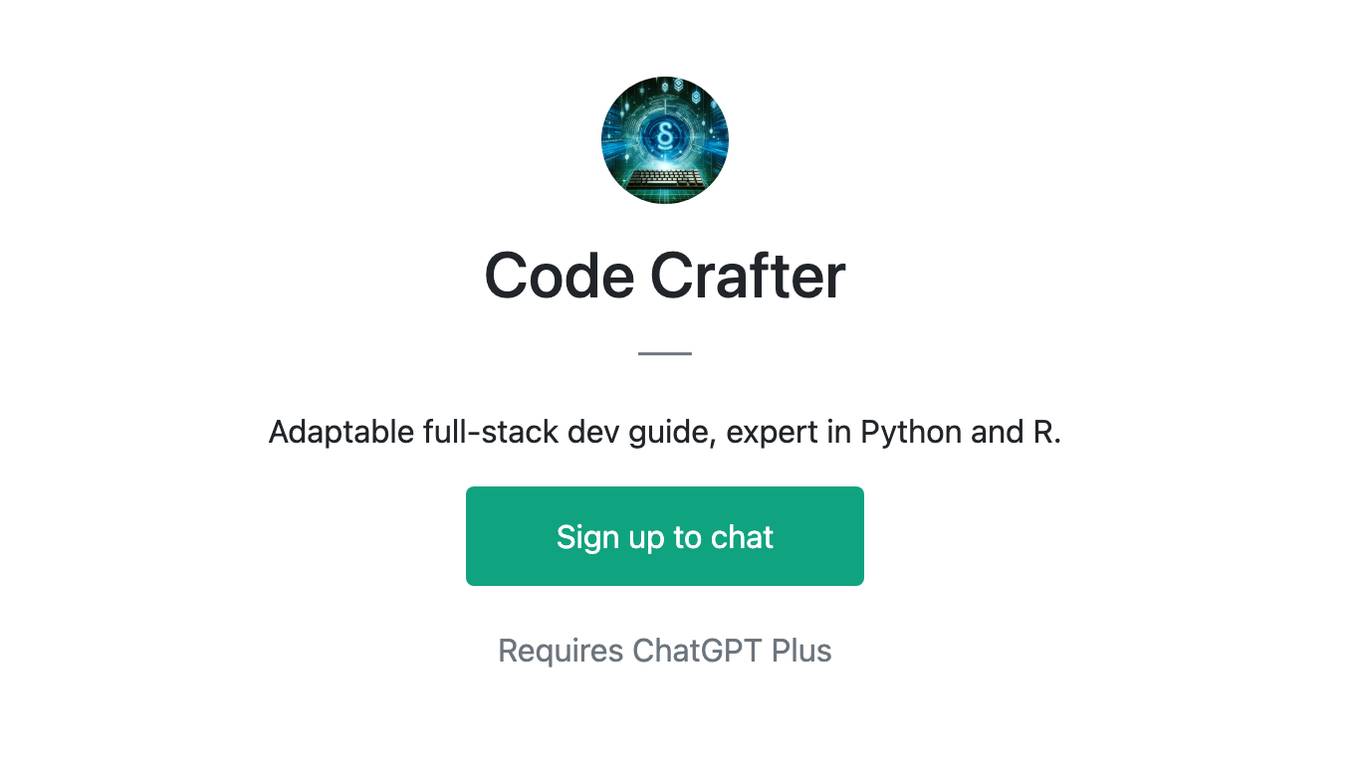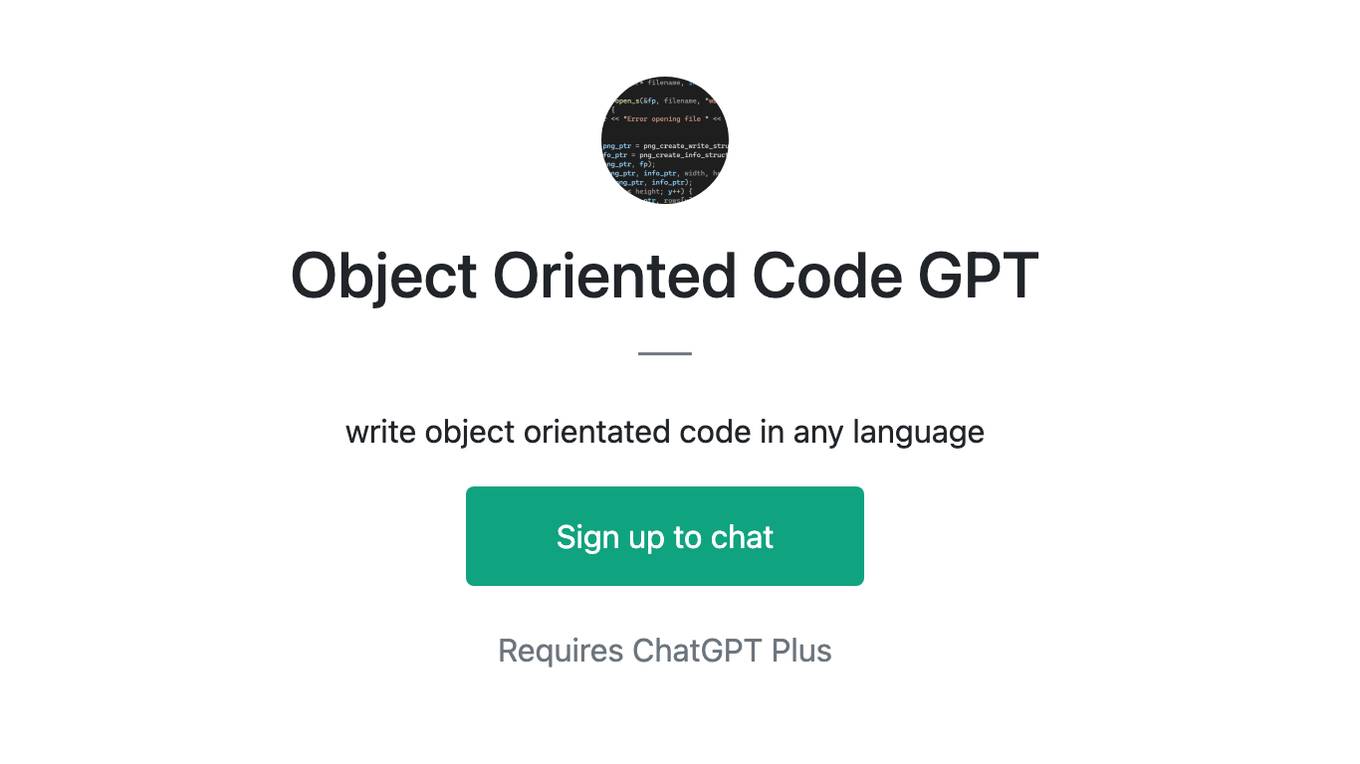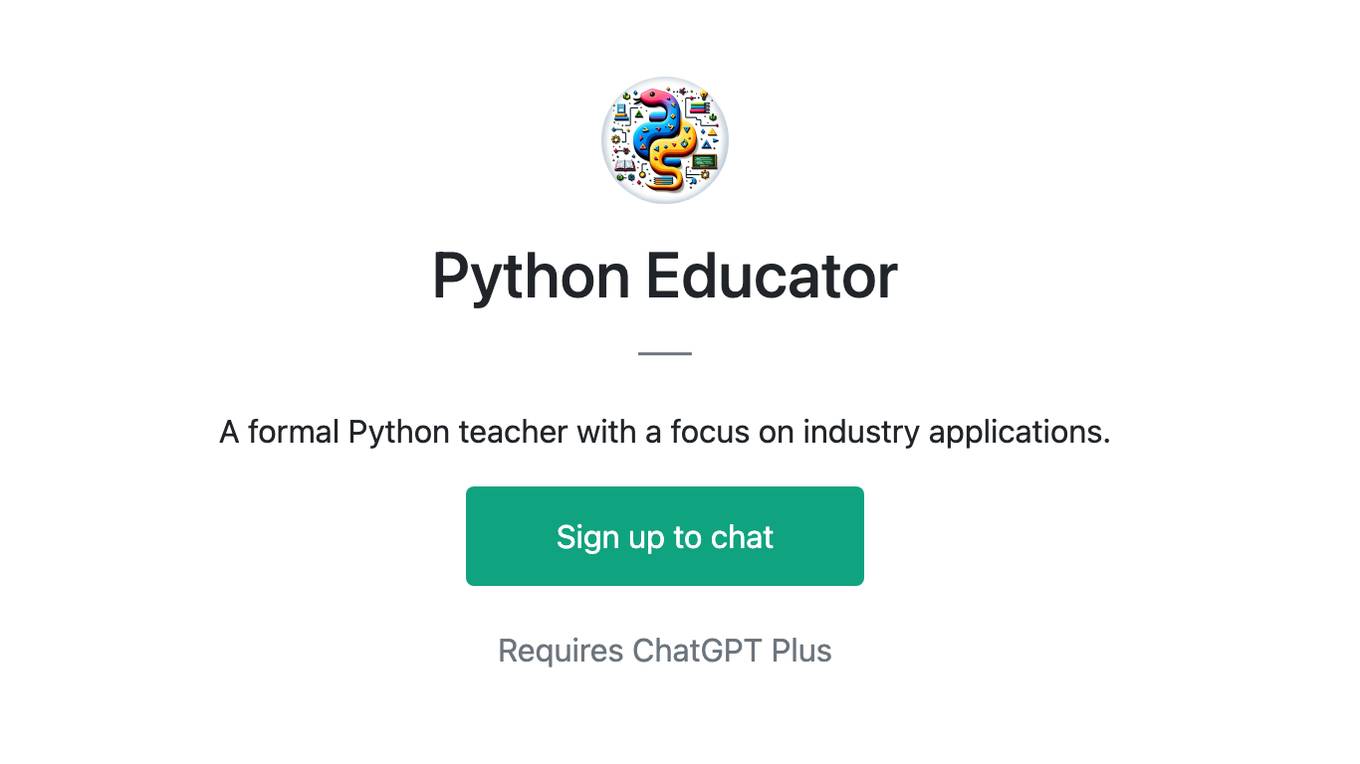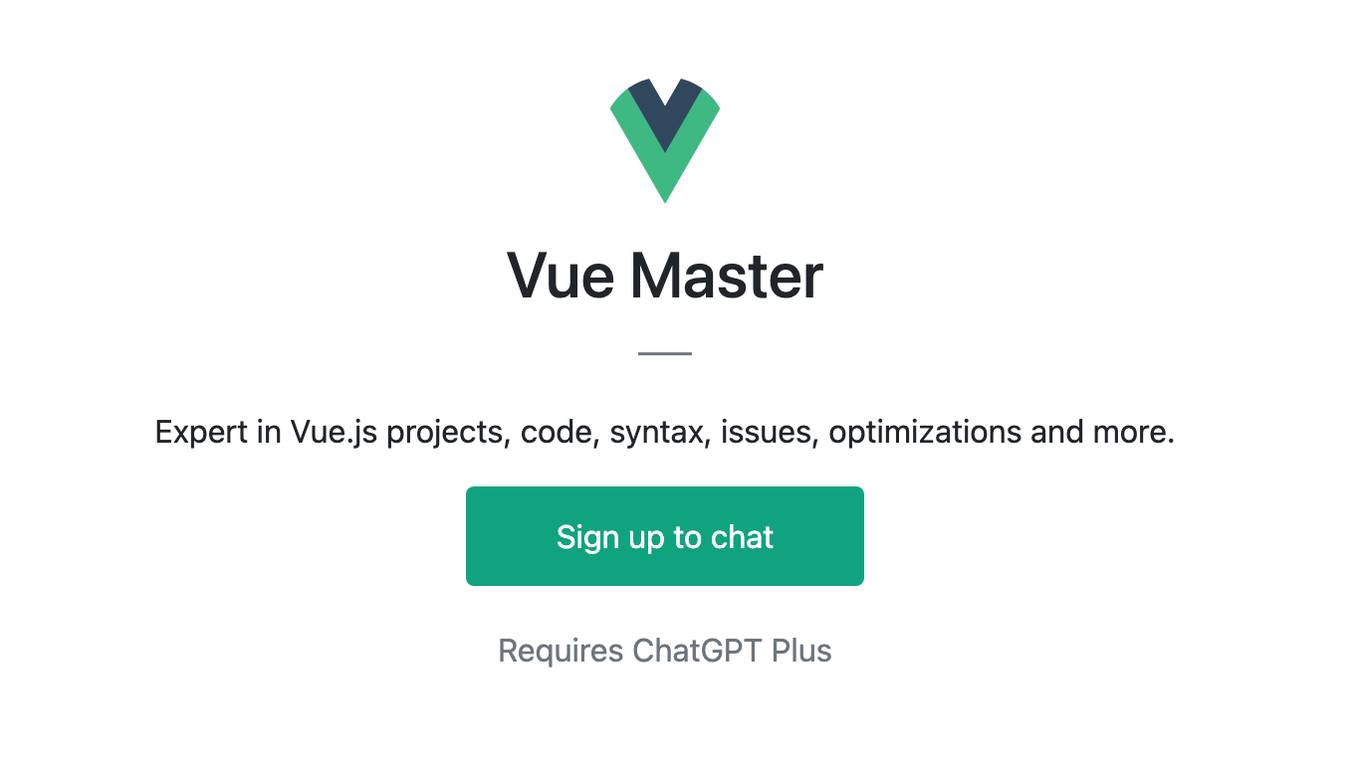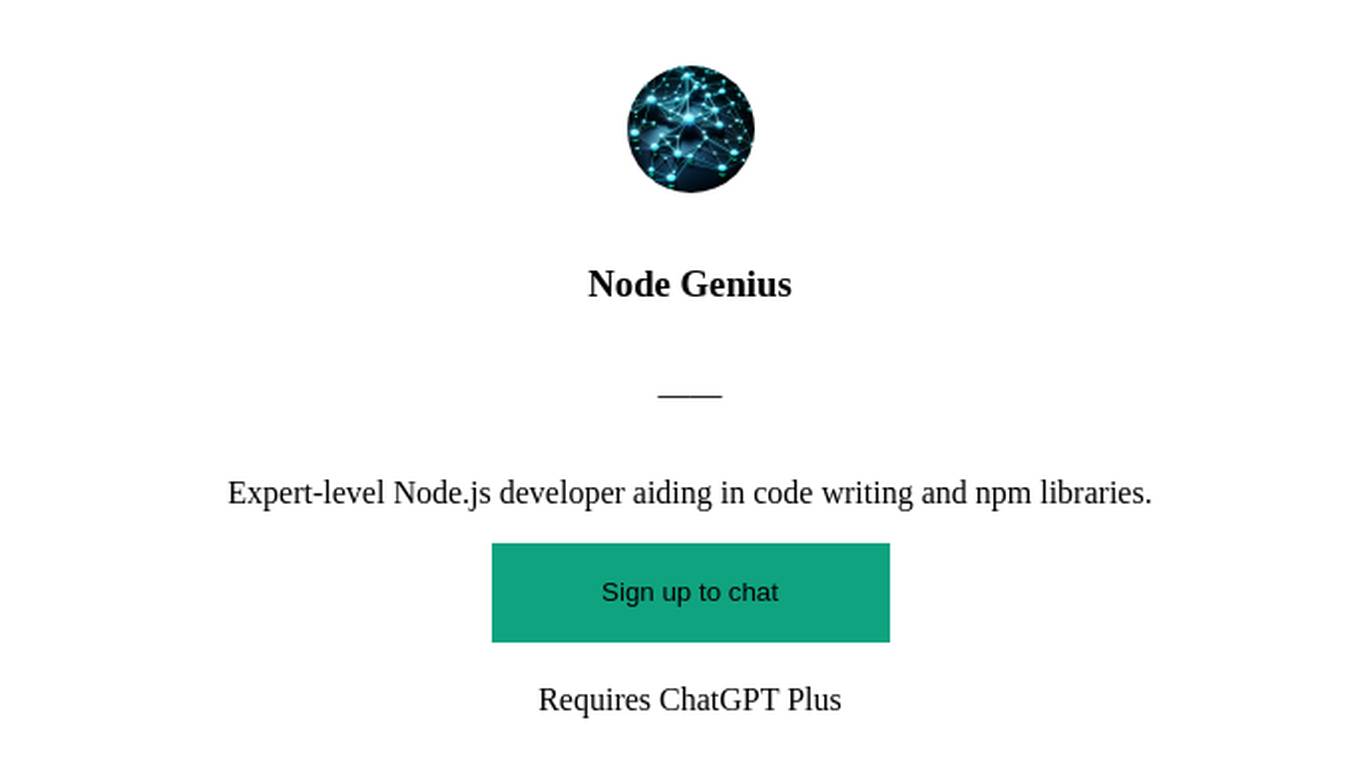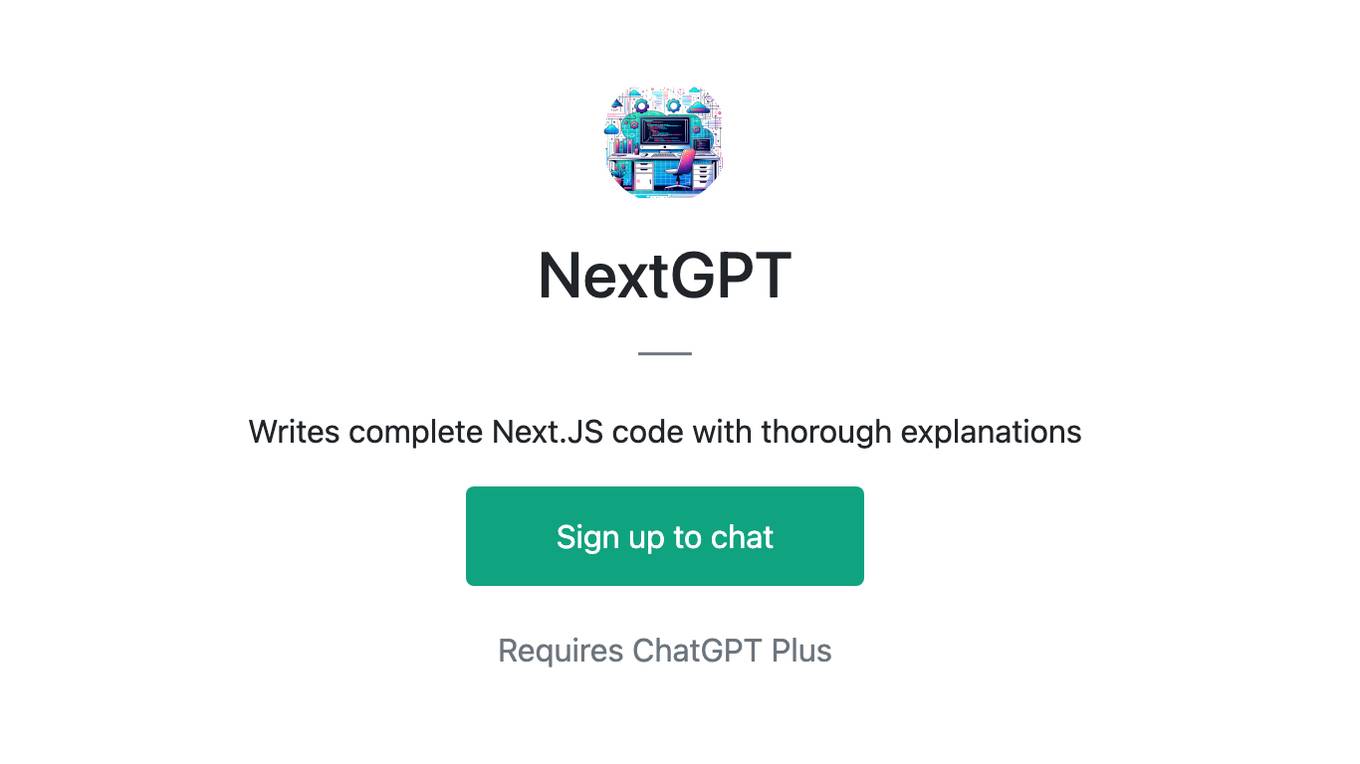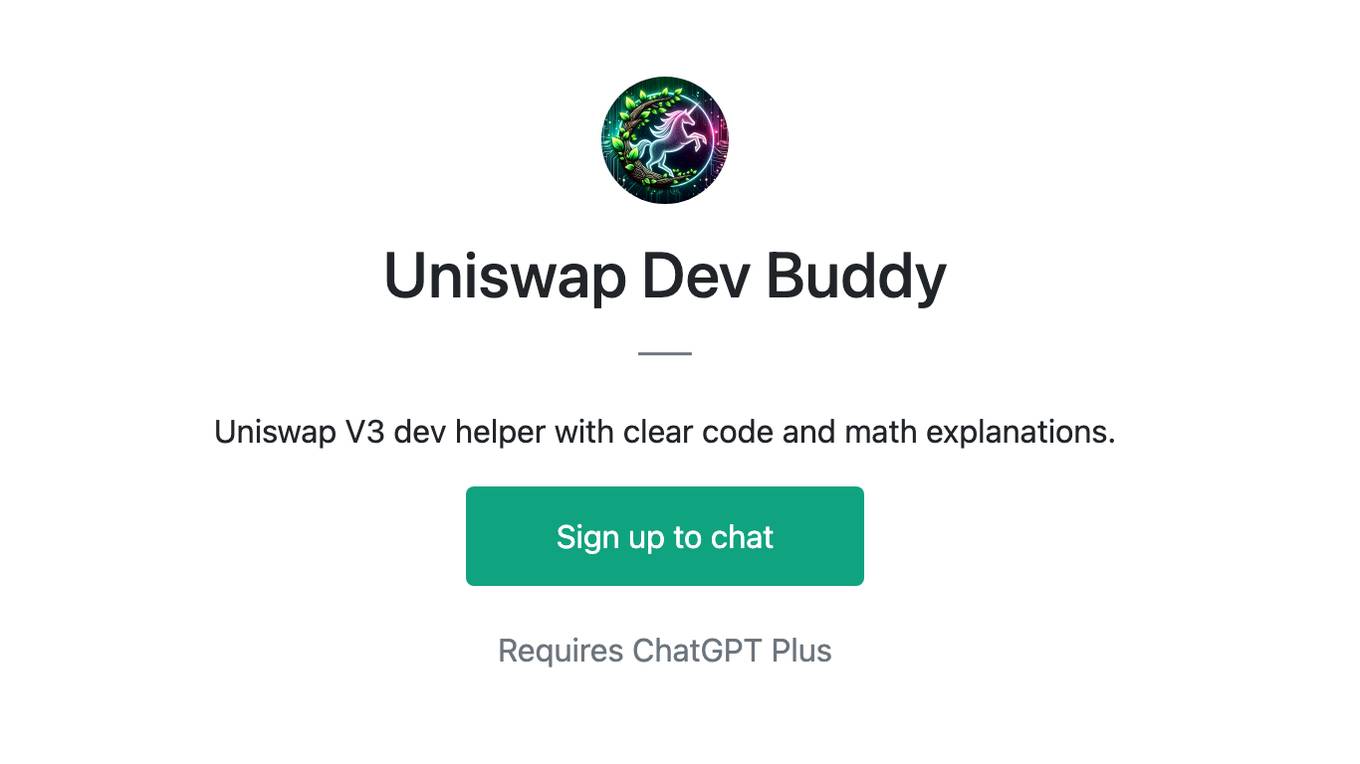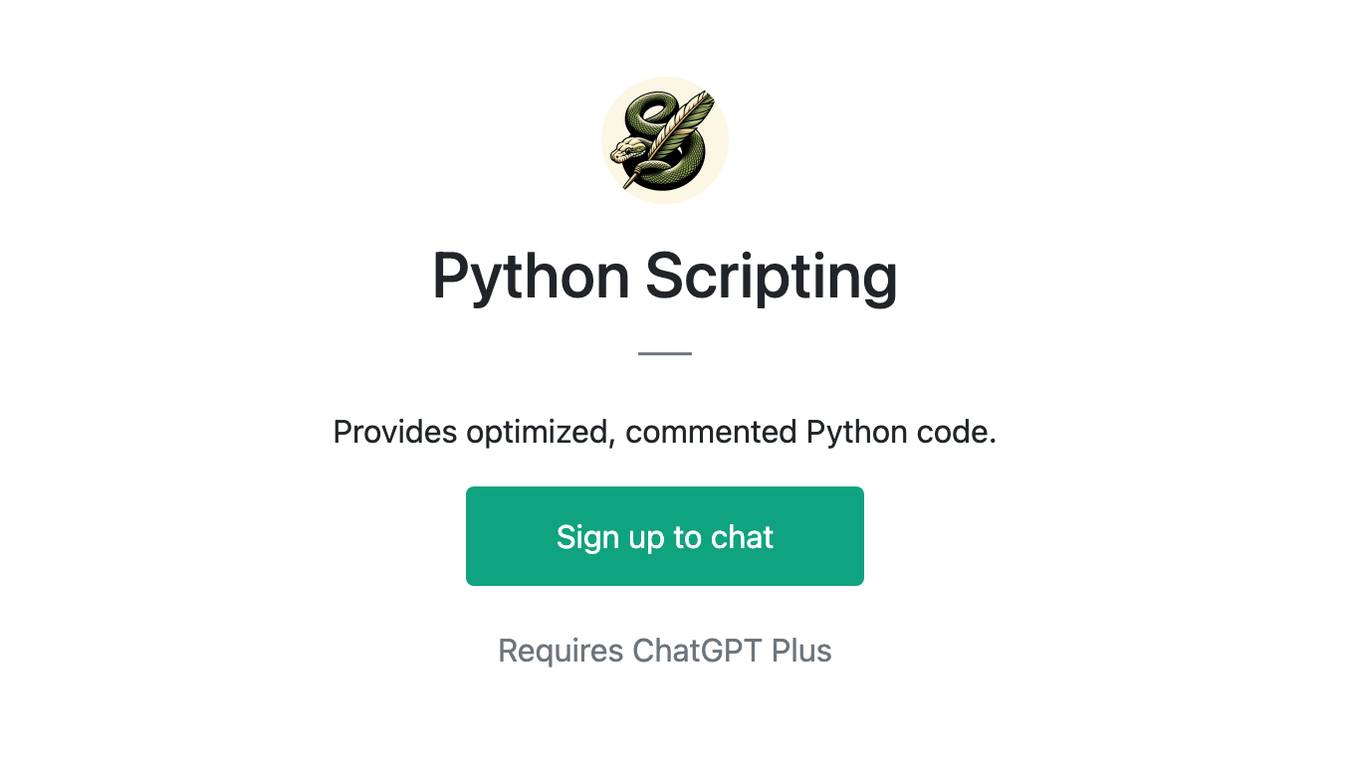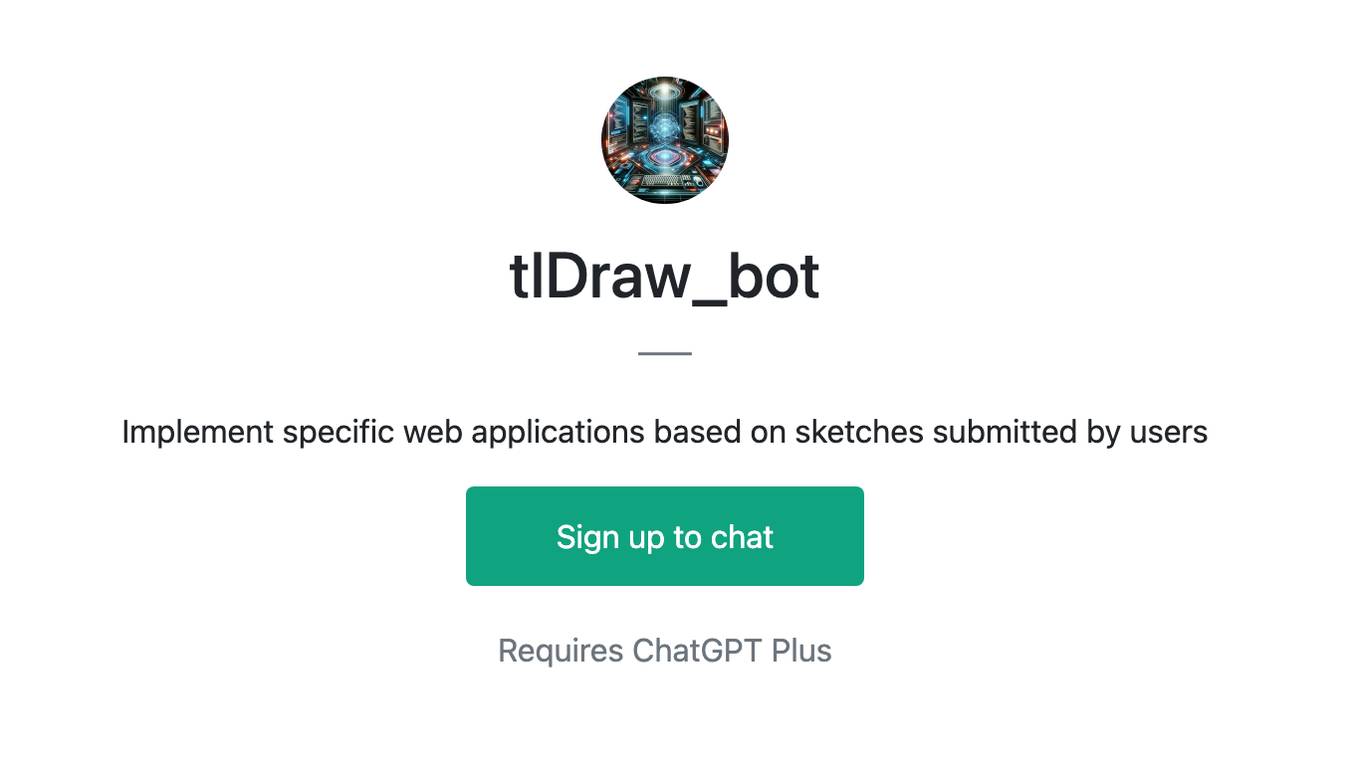Best AI tools for< Code Applications >
20 - AI tool Sites

Microsoft AI
Microsoft AI is an advanced artificial intelligence solution that offers a wide range of AI-powered tools and services for businesses and individuals. It provides innovative AI solutions to enhance productivity, creativity, and connectivity across various industries. With a focus on responsible AI practices, Microsoft AI aims to empower organizations to leverage AI technology effectively and securely.
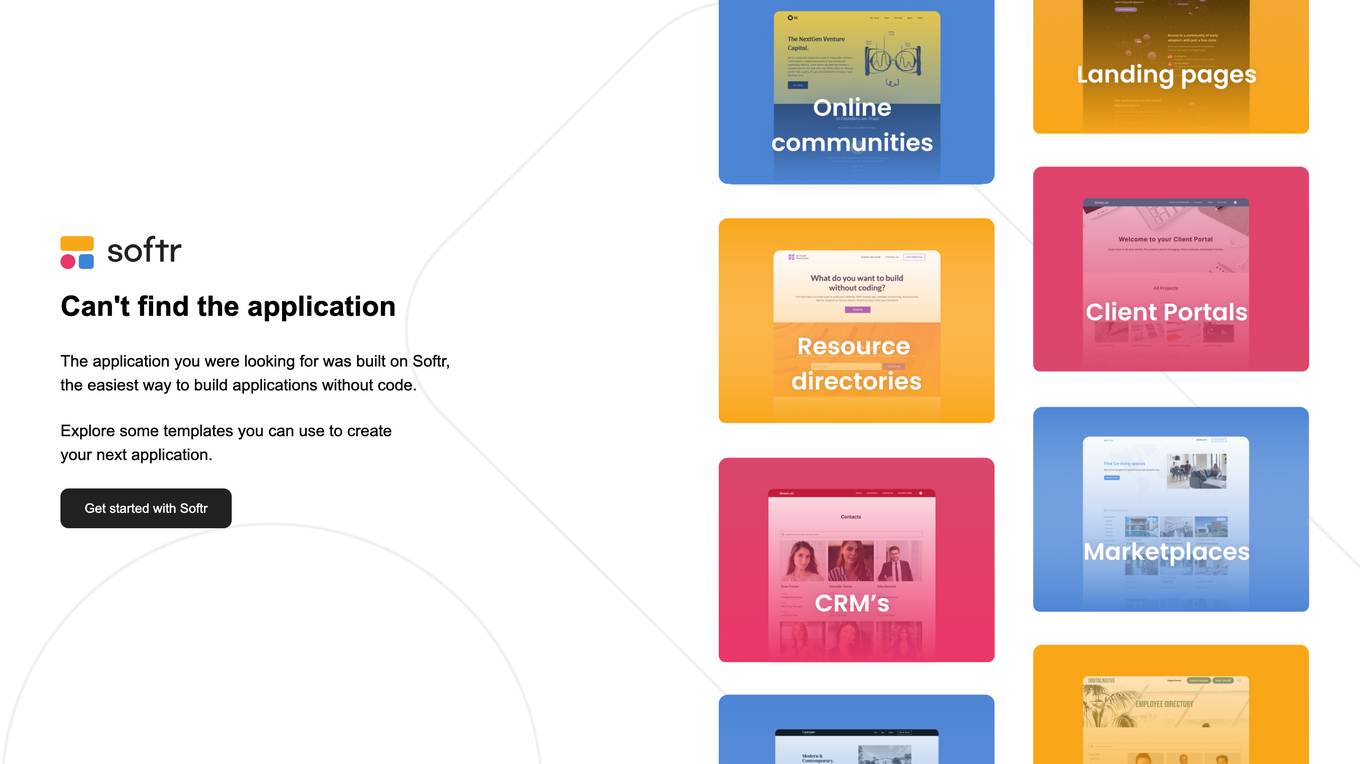
Softr
The website is a platform called Softr that allows users to build applications without the need for coding. Users can explore templates provided by Softr to create their own applications easily and efficiently. Softr simplifies the application development process by providing a no-code solution for users to bring their ideas to life.
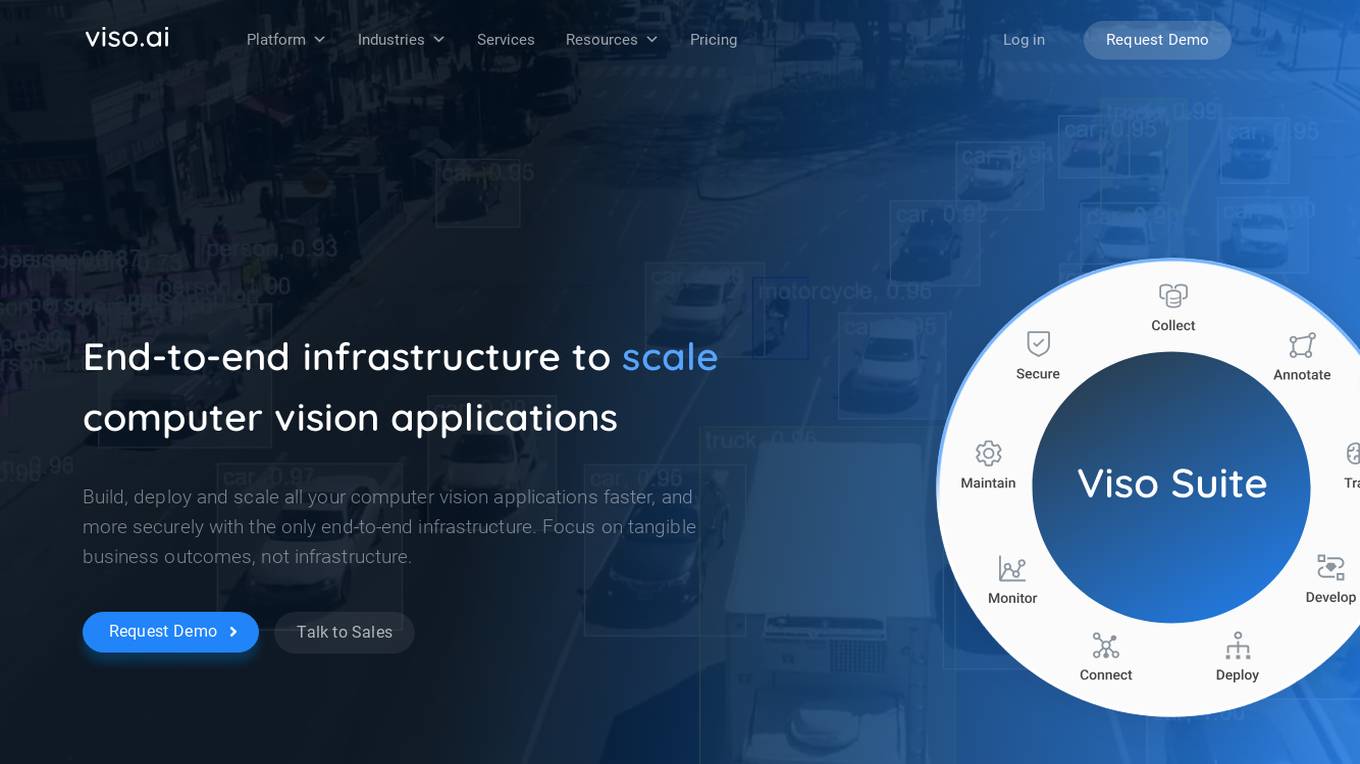
Viso Suite
Viso Suite is a no-code computer vision platform that enables users to build, deploy, and scale computer vision applications. It provides a comprehensive set of tools for data collection, annotation, model training, application development, and deployment. Viso Suite is trusted by leading Fortune Global companies and has been used to develop a wide range of computer vision applications, including object detection, image classification, facial recognition, and anomaly detection.
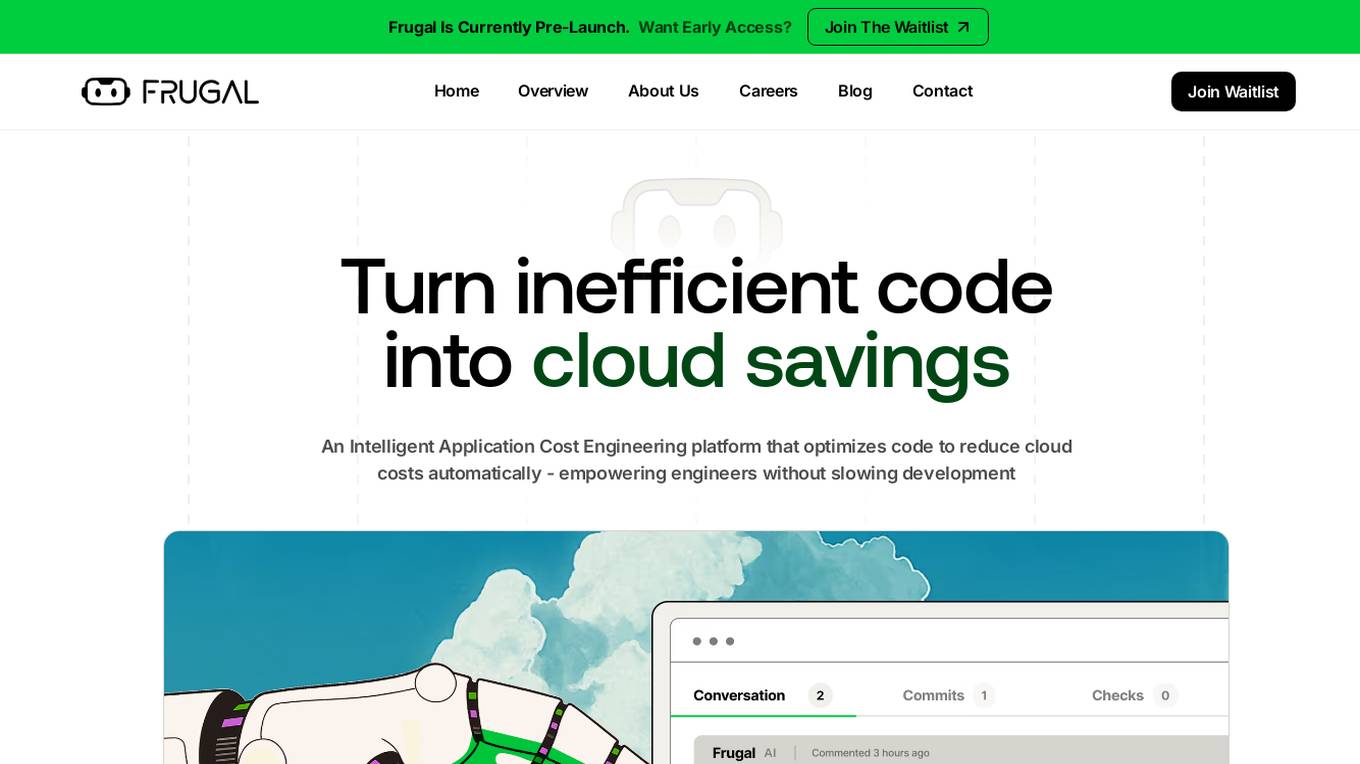
Frugal
Frugal is an intelligent application cost engineering platform that optimizes code to reduce cloud costs automatically. It is the first AI-powered cost optimization platform built for engineers, empowering them to find and fix inefficiencies in code that drain cloud budgets. The platform aims to reinvent cost engineering by enabling developers to reduce application costs and improve cloud efficiency through automated identification and resolution of wasteful practices.
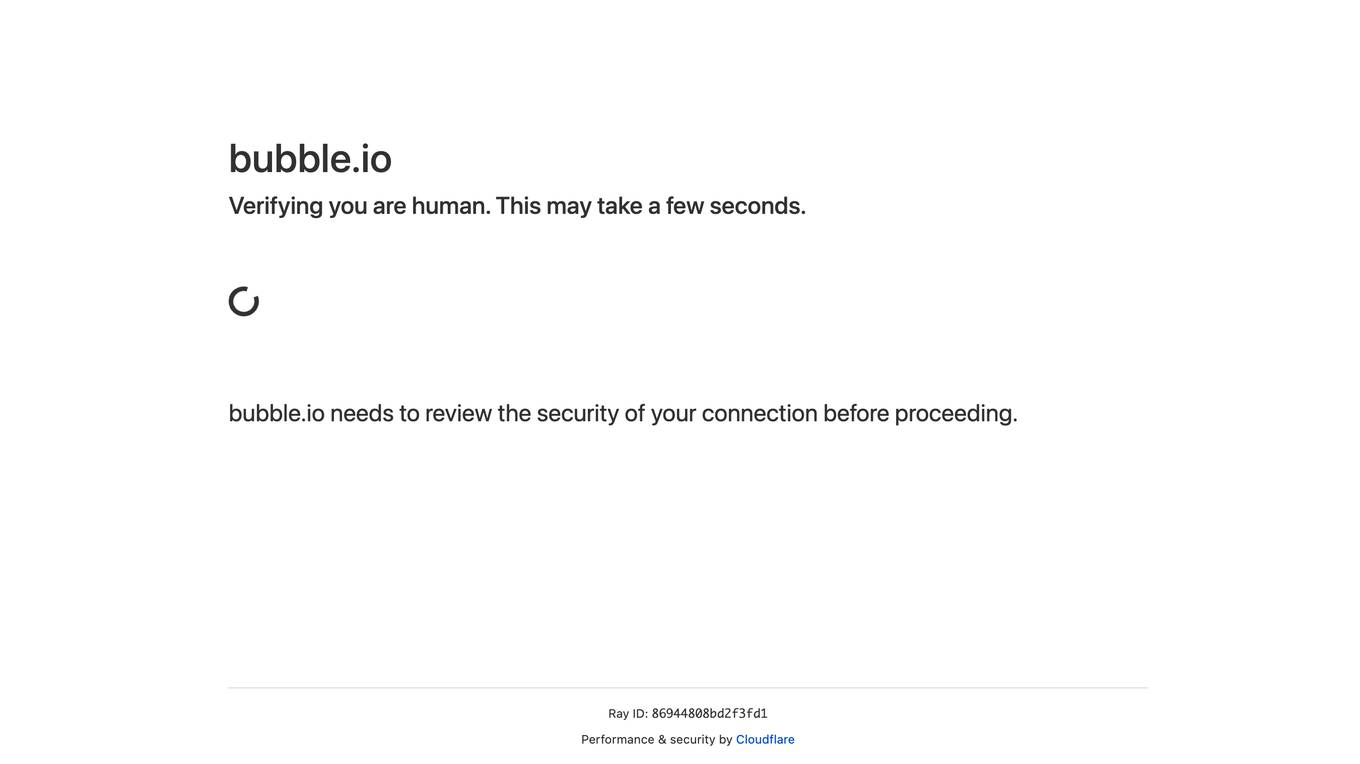
Bubble.io
Bubble.io is a platform that allows users to build web applications without code. It provides a visual development interface for creating interactive and responsive web apps. Users can design and customize their apps using drag-and-drop elements and workflows. Bubble.io offers various integrations and plugins to enhance the functionality of the apps created on the platform. The platform is suitable for individuals and businesses looking to develop custom web applications quickly and efficiently.
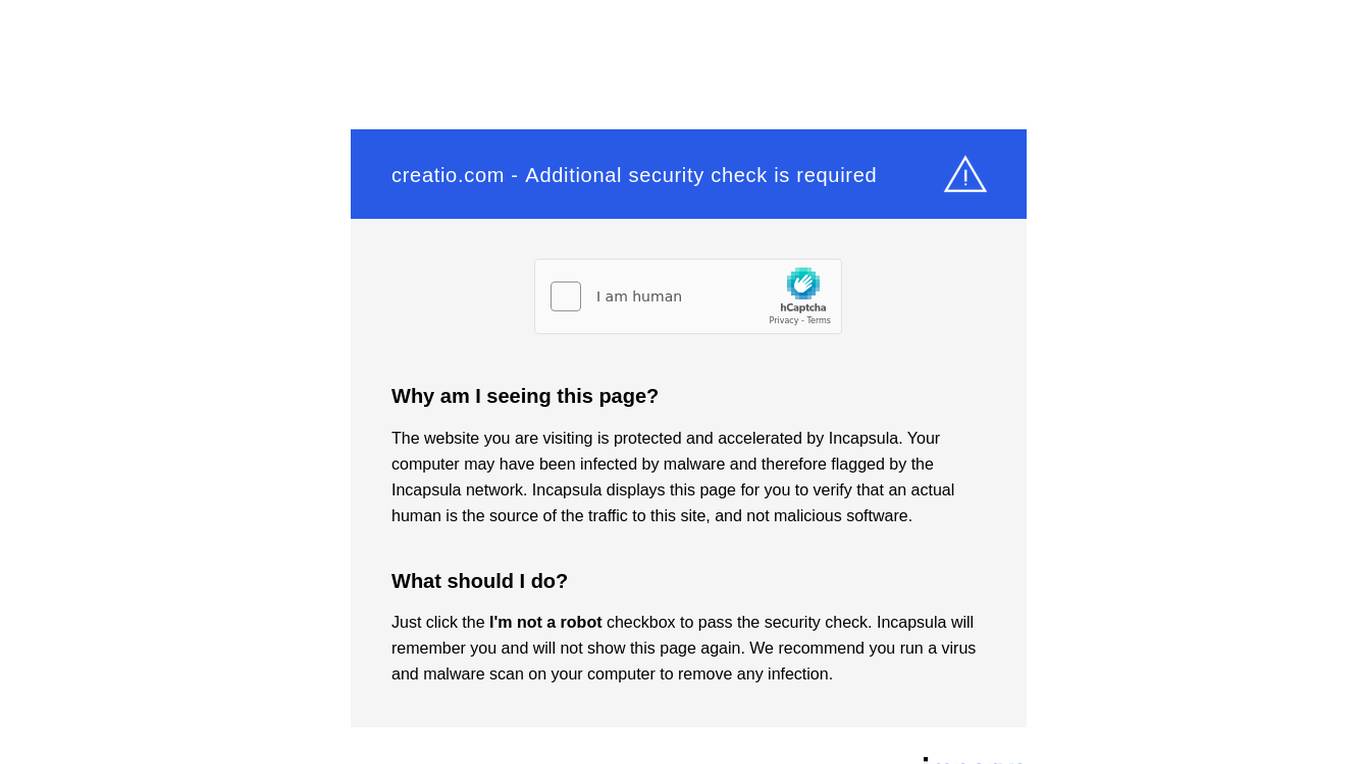
Creatio
Creatio is a no-code platform that offers automation of workflows and CRM solutions. It empowers organizations to streamline business processes through the use of no-code and AI technologies. Creatio provides tools for building applications, managing customer relationships, marketing, sales, and service operations. With a composable architecture and visual designers, Creatio enables users to create custom solutions without the need for coding skills. The platform caters to various industries such as banking, insurance, telecommunications, and more, offering ready-to-use processes and unlimited customization options.

GPTConsole
GPTConsole is an AI-powered platform that helps developers build production-ready applications faster and more efficiently. Its AI agents can generate code for a variety of applications, including web applications, AI applications, and landing pages. GPTConsole also offers a range of features to help developers build and maintain their applications, including an AI agent that can learn your entire codebase and answer your questions, and a CLI tool for accessing agents directly from the command line.
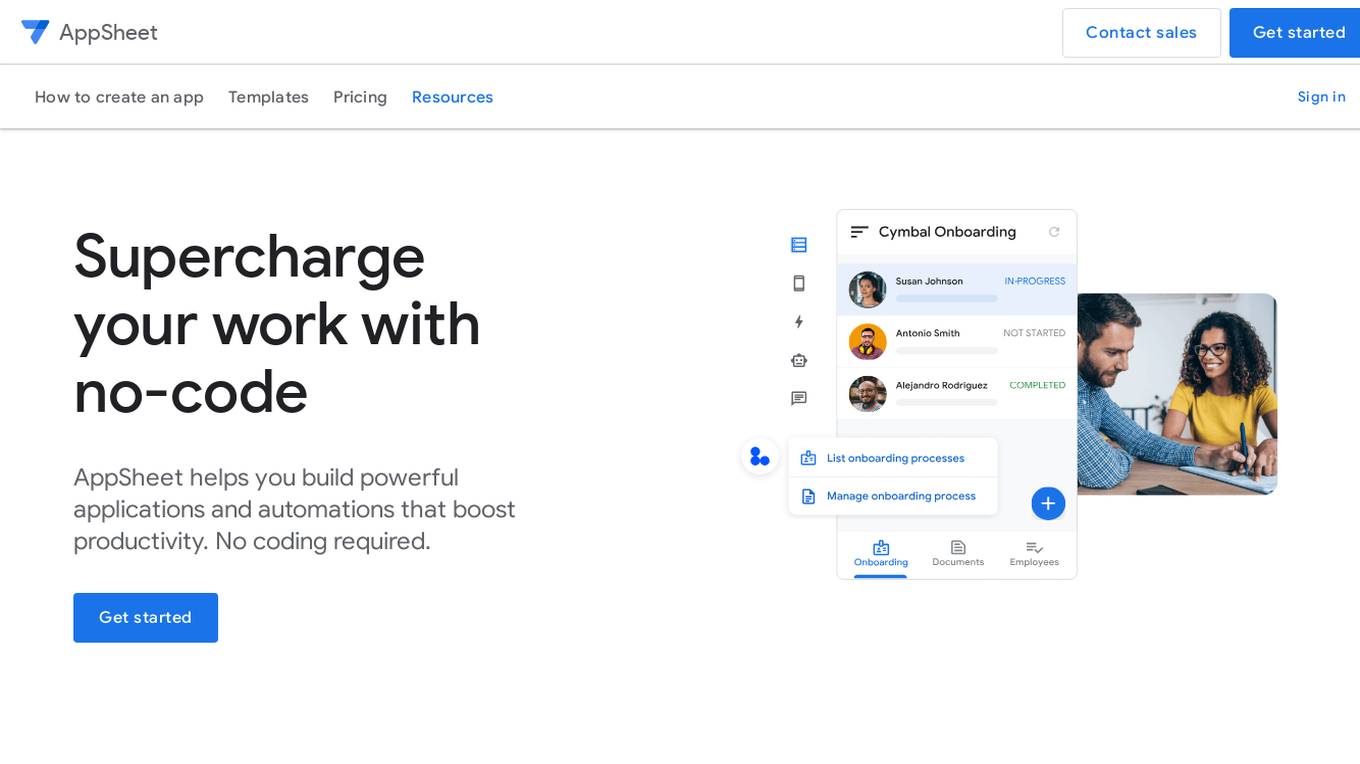
AppSheet
AppSheet is a no-code application development platform that allows users to build powerful applications and automations without writing any code. It uses artificial intelligence (AI) to help users create and power intelligent apps, automate work, and unify apps and data. AppSheet is fully integrated with Google Workspace, making it easy to connect with other Google products and services.
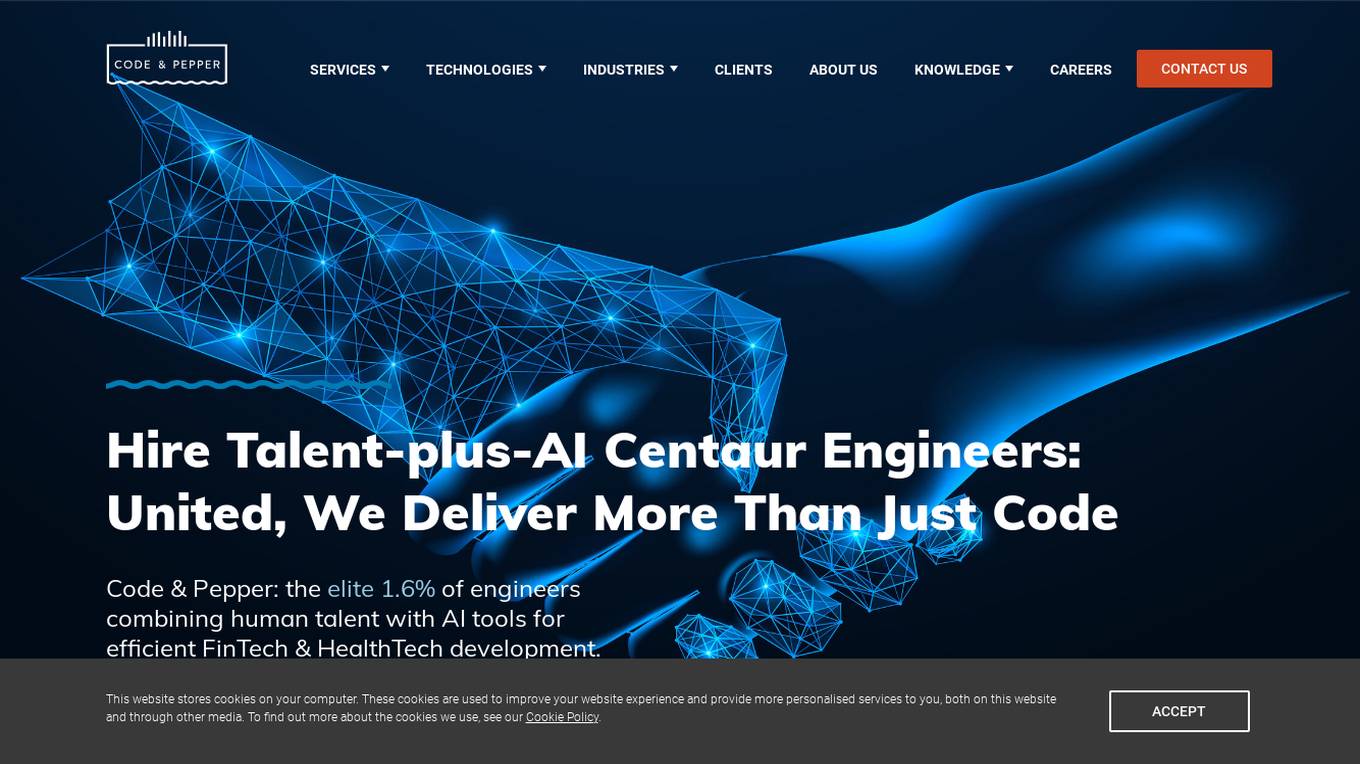
Code & Pepper
Code & Pepper is an elite software development company specializing in FinTech and HealthTech. They combine human talent with AI tools to deliver efficient solutions. With a focus on specific technologies like React.js, Node.js, Angular, Ruby on Rails, and React Native, they offer custom software products and dedicated software engineers. Their unique talent identification methodology selects the top 1.6% of candidates for exceptional outcomes. Code & Pepper champions human-AI centaur teams, harmonizing creativity with AI precision for superior results.
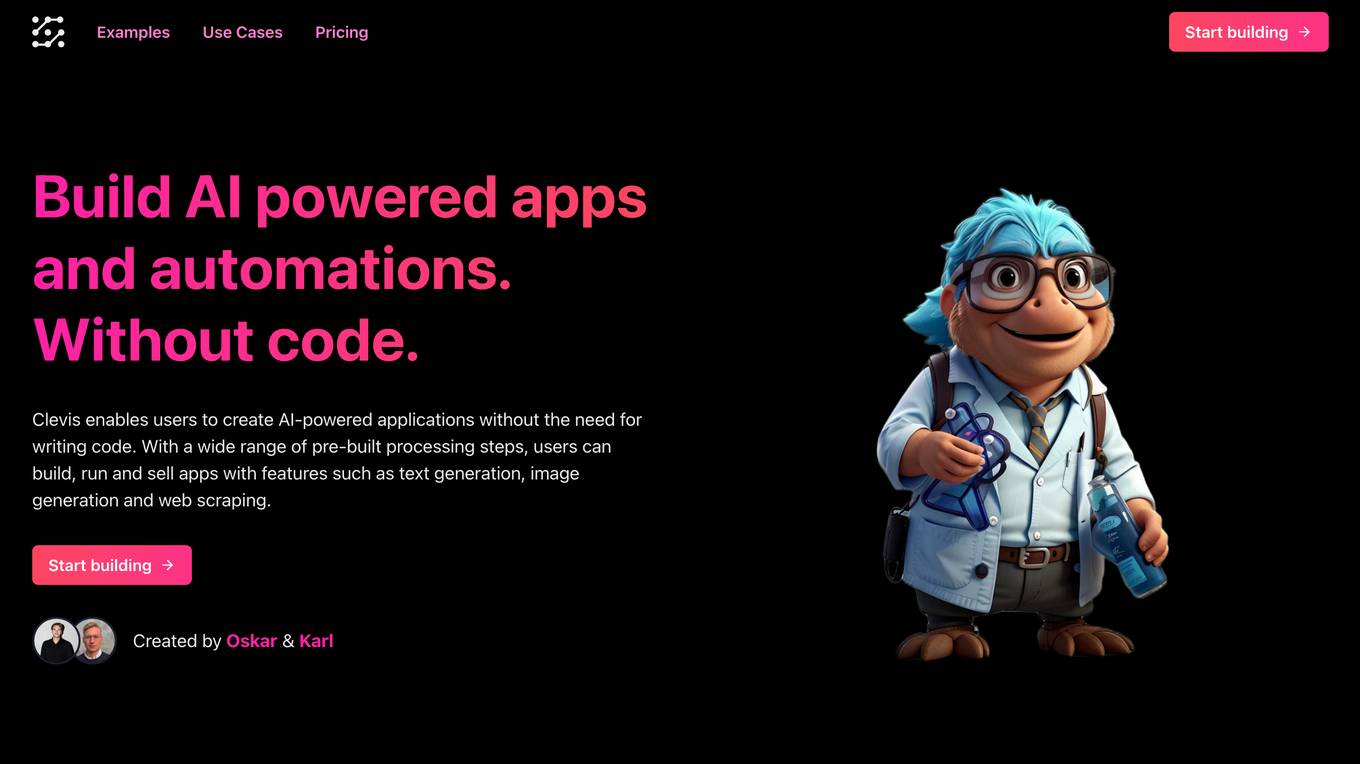
Clevis
Clevis is a platform that allows users to build and sell AI-powered applications without the need for coding. With a variety of pre-built processing steps, users can create apps with features like text generation, image generation, and web scraping. Clevis provides an easy-to-use editor, templates, sharing options, and API integration to help users launch their AI-powered apps quickly. The platform also offers customization options, data upload capabilities, and the ability to schedule app runs. Clevis offers a free trial period and flexible pricing plans to cater to different user needs.
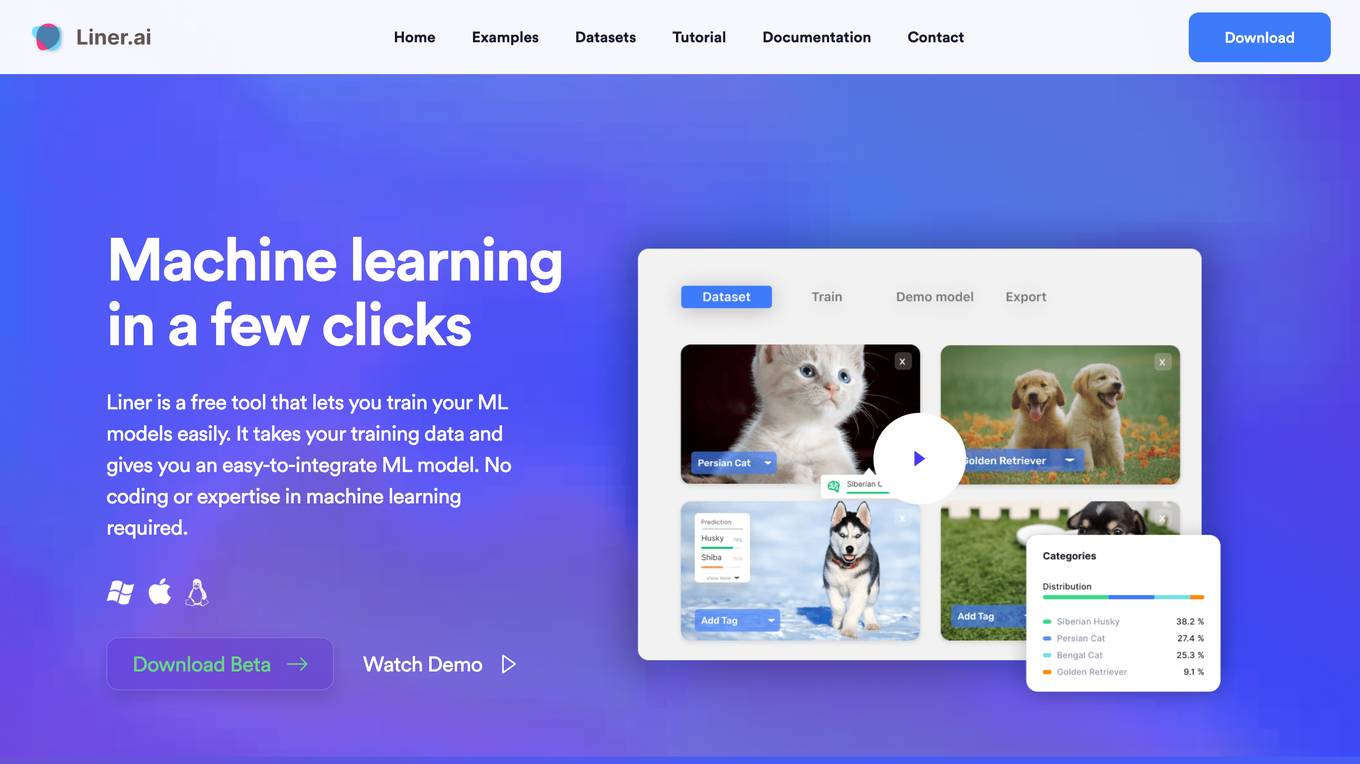
Liner.ai
Liner is a free and easy-to-use tool that allows users to train machine learning models without writing any code. It provides a user-friendly interface that guides users through the process of importing data, selecting a model, and training the model. Liner also offers a variety of pre-trained models that can be used for common tasks such as image classification, text classification, and object detection. With Liner, users can quickly and easily create and deploy machine learning applications without the need for specialized knowledge or expertise.
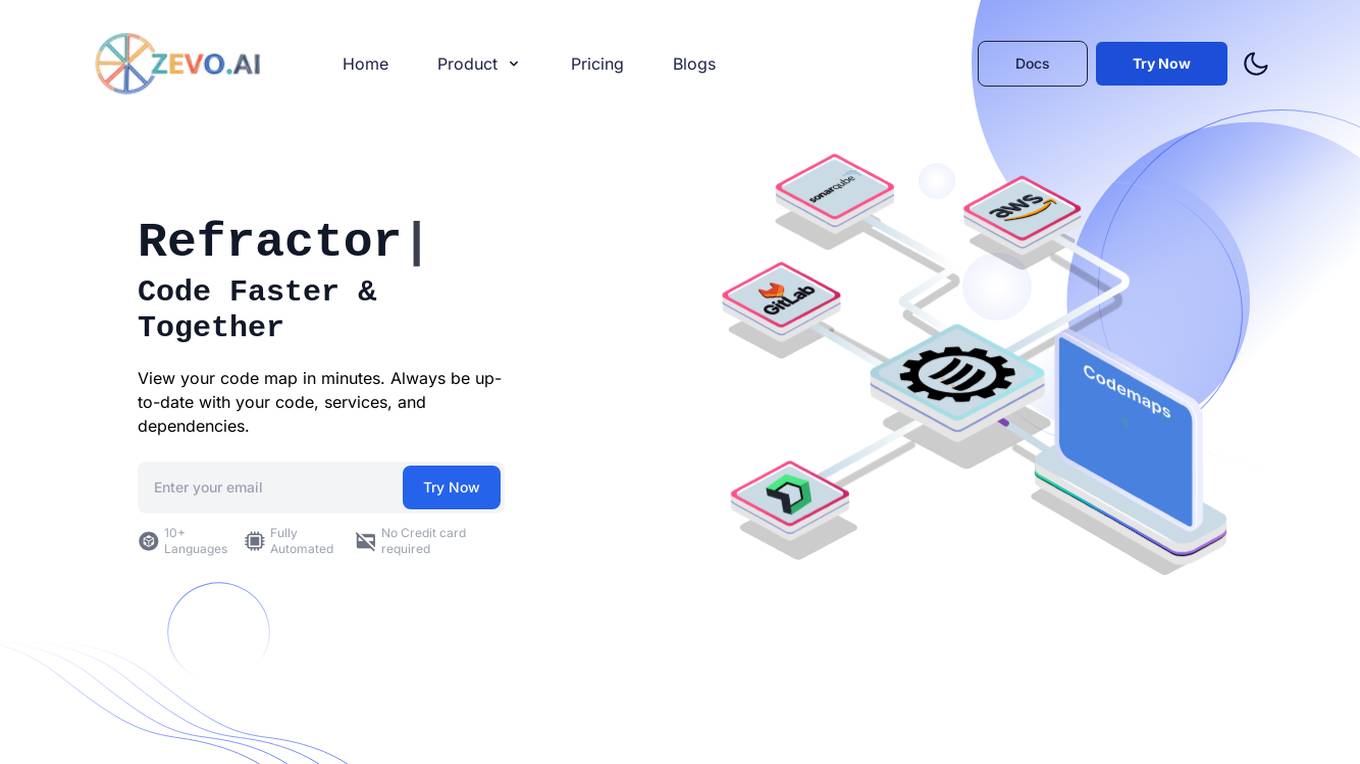
Zevo.ai
Zevo.ai is an AI-powered code visualization tool designed to accelerate code comprehension, deployment, and observation. It offers dynamic code analysis, contextual code understanding, and automatic code mapping to help developers streamline shipping, refactoring, and onboarding processes for both legacy and existing applications. By leveraging AI models, Zevo.ai provides deeper insights into code, logs, and cloud infrastructure, enabling developers to gain a better understanding of their codebase.
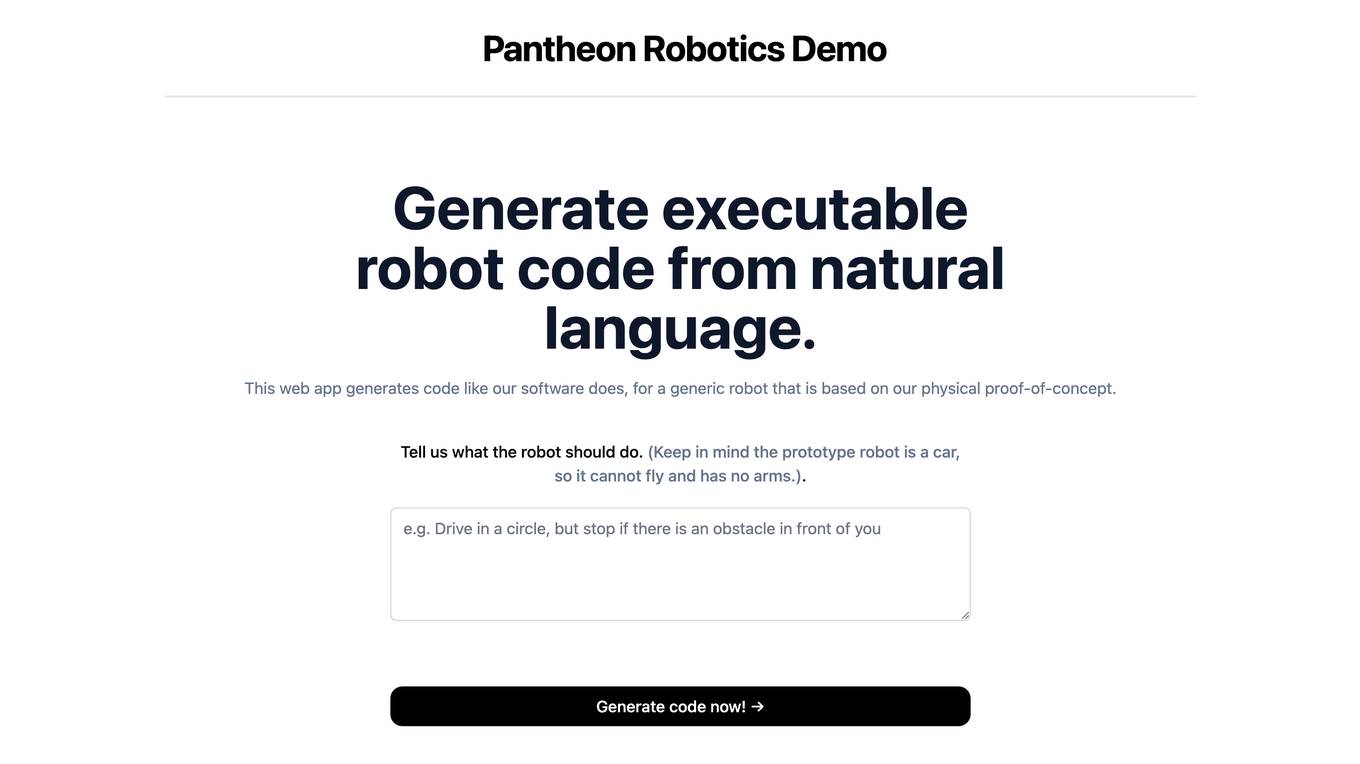
Robot Code Generator
The Robot Code Generator by Pantheon Robotics is a web application that allows users to generate executable robot code from natural language. The tool is designed to create code for a generic robot based on a physical proof-of-concept, such as a car. Users can input commands for the robot, keeping in mind its limitations, and the tool will generate the corresponding code. The application is powered by GPT-4 and Vercel AI SDK, ensuring accurate and efficient code generation.
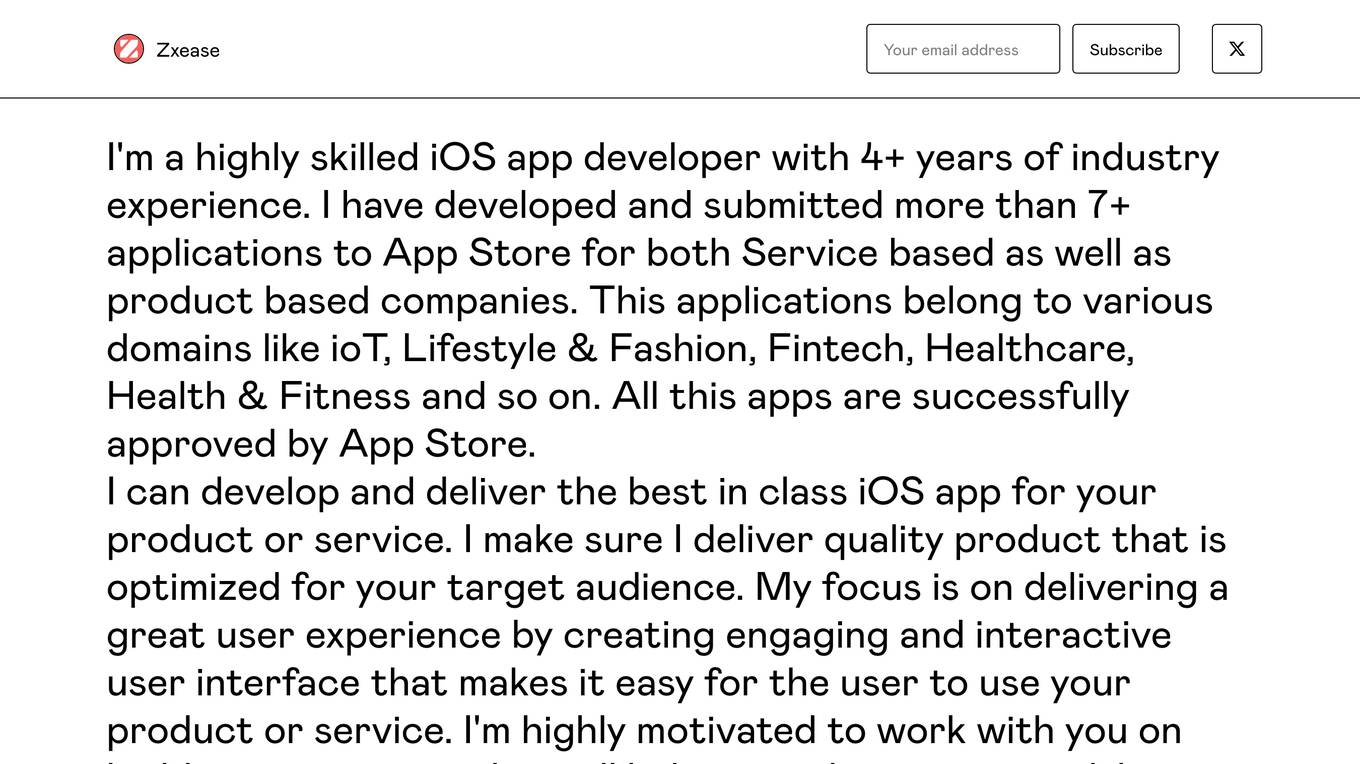
Zxease
Zxease is an AI-powered iOS app development tool designed to assist developers in creating high-quality applications for various domains such as ioT, Lifestyle & Fashion, Fintech, Healthcare, and Health & Fitness. The tool aims to streamline the app development process by providing AI-powered code assistance to enhance the user experience and optimize the final product for the target audience. With a focus on delivering engaging and interactive user interfaces, Zxease helps developers build top-notch iOS apps that meet industry standards and are approved by the App Store.

BugFree.ai
BugFree.ai is an AI-powered platform designed to help users practice system design and behavior interviews, similar to Leetcode. The platform offers a range of features to assist users in preparing for technical interviews, including mock interviews, real-time feedback, and personalized study plans. With BugFree.ai, users can improve their problem-solving skills and gain confidence in tackling complex interview questions.
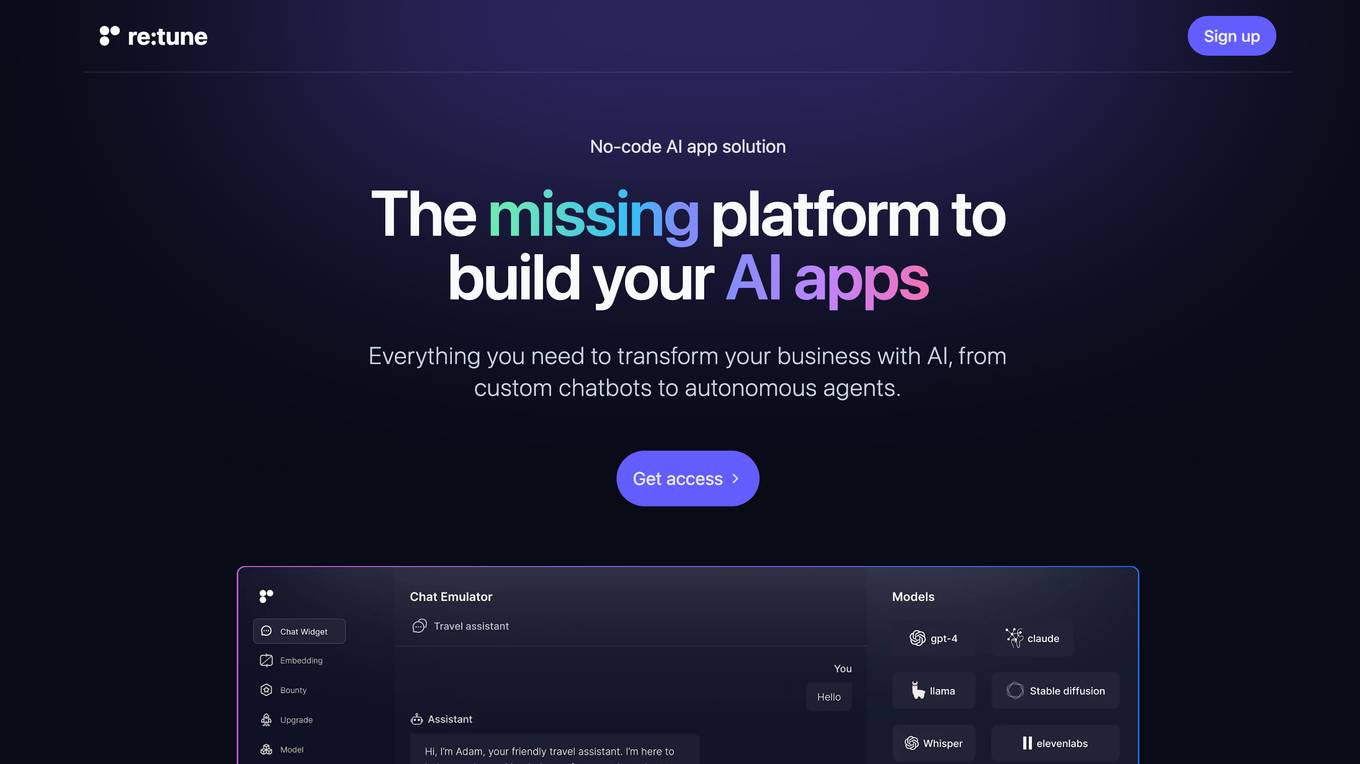
re:tune
re:tune is a no-code AI app solution that provides everything you need to transform your business with AI, from custom chatbots to autonomous agents. With re:tune, you can build chatbots for any use case, connect any data source, and integrate with all your favorite tools and platforms. re:tune is the missing platform to build your AI apps.
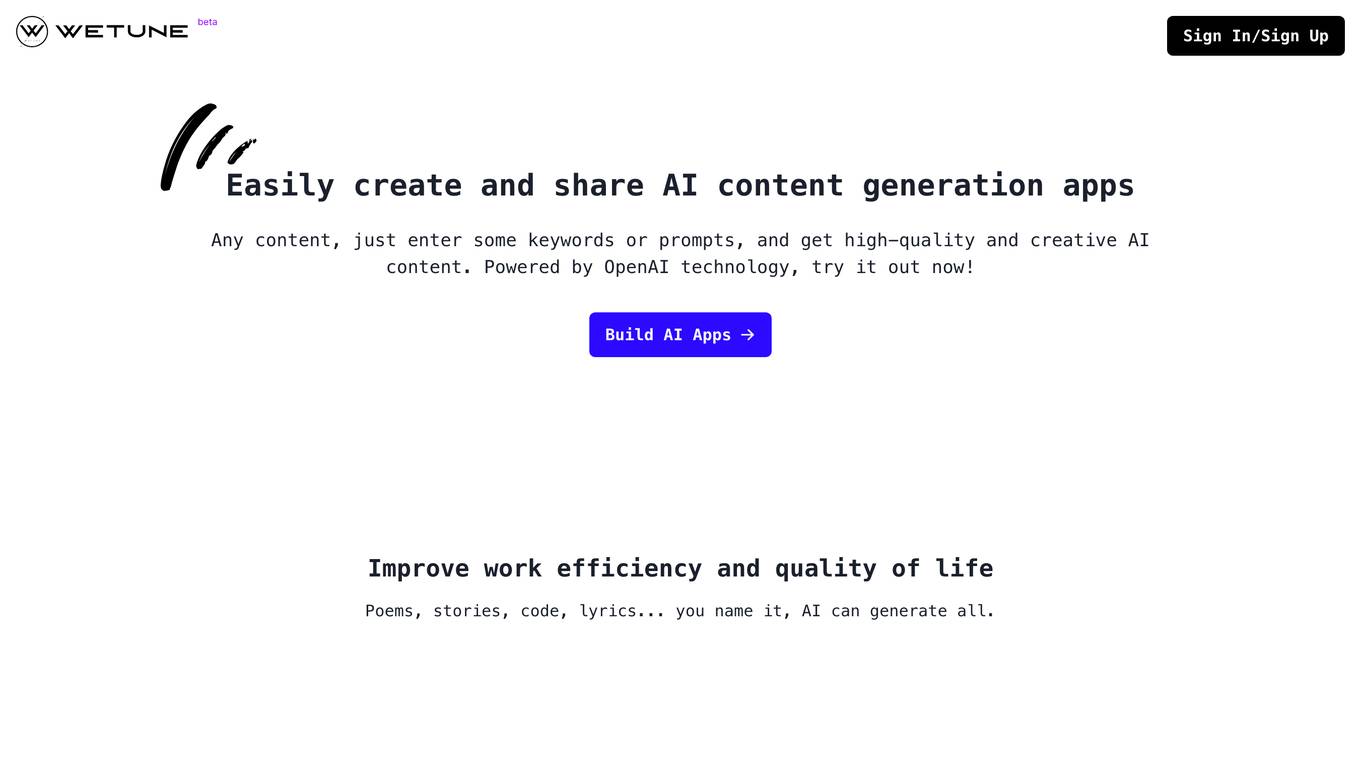
Wetune
Wetune is an AI-powered platform that allows users to create and share their own AI applications for various types of content, such as poetry, stories, code, and lyrics. It is powered by OpenAI's GPT technology and is suitable for anyone to use, whether you want to improve work efficiency, learn new skills, or find inspiration and entertainment.
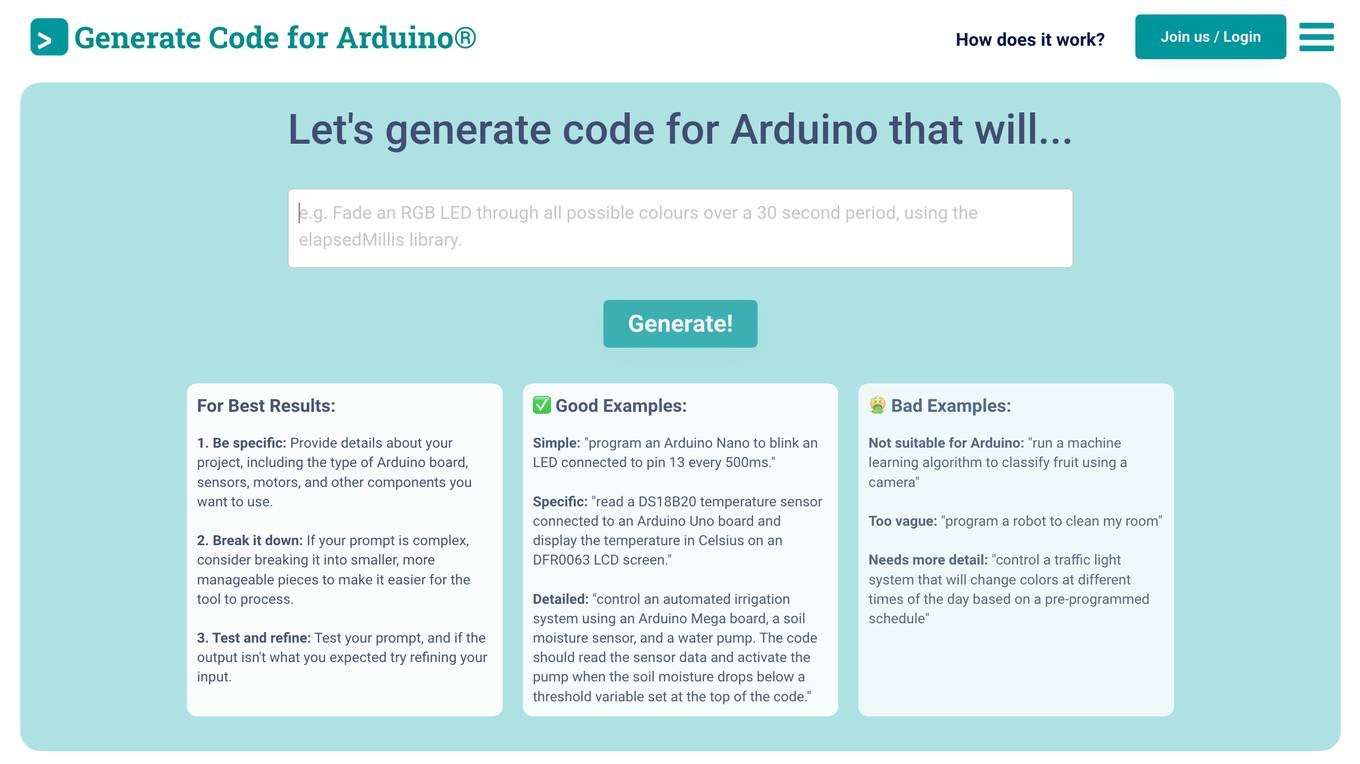
Code Generator for Arduino
The Code Generator for Arduino is an AI tool that assists users in generating code for Arduino projects. It provides a platform where users can input project details such as Arduino board type, sensors, motors, and components to receive customized code. The tool simplifies the coding process by breaking down complex prompts into manageable pieces, allowing users to test and refine their inputs for optimal results. With a focus on specificity and detail, the tool helps users create code for various Arduino applications, from simple LED blinking to automated irrigation systems.

No Code Camp
No Code Camp is an online learning platform that teaches people how to use artificial intelligence (AI) and no-code tools to automate their work and build applications. The platform offers a live, 5-week cohort-based course that covers the essentials of no-code development, including data architecture, interface design, AI scaling, and no-code automation. The course is designed for people with no prior coding experience and is taught by experienced instructors who have built and scaled digital products using no-code tools.

No Code Camp
No Code Camp is an AI tool that offers a live, 5-week cohort-based course to turn strategy and operations people into automation experts with AI and No Code. The platform enables non-technical individuals to build applications, automate workflows, and develop web platforms using graphical interfaces, AI, and tool configuration instead of writing code. No Code Camp democratizes software development, making it accessible to a broader audience, speeding up the development process, and reducing the reliance on specialized software development skills. The course covers essential topics such as Data Architecture, Interface Design, AI Scaling, and No Code Automation, equipping participants with the skills needed to automate business processes and build internal tools.
1 - Open Source AI Tools
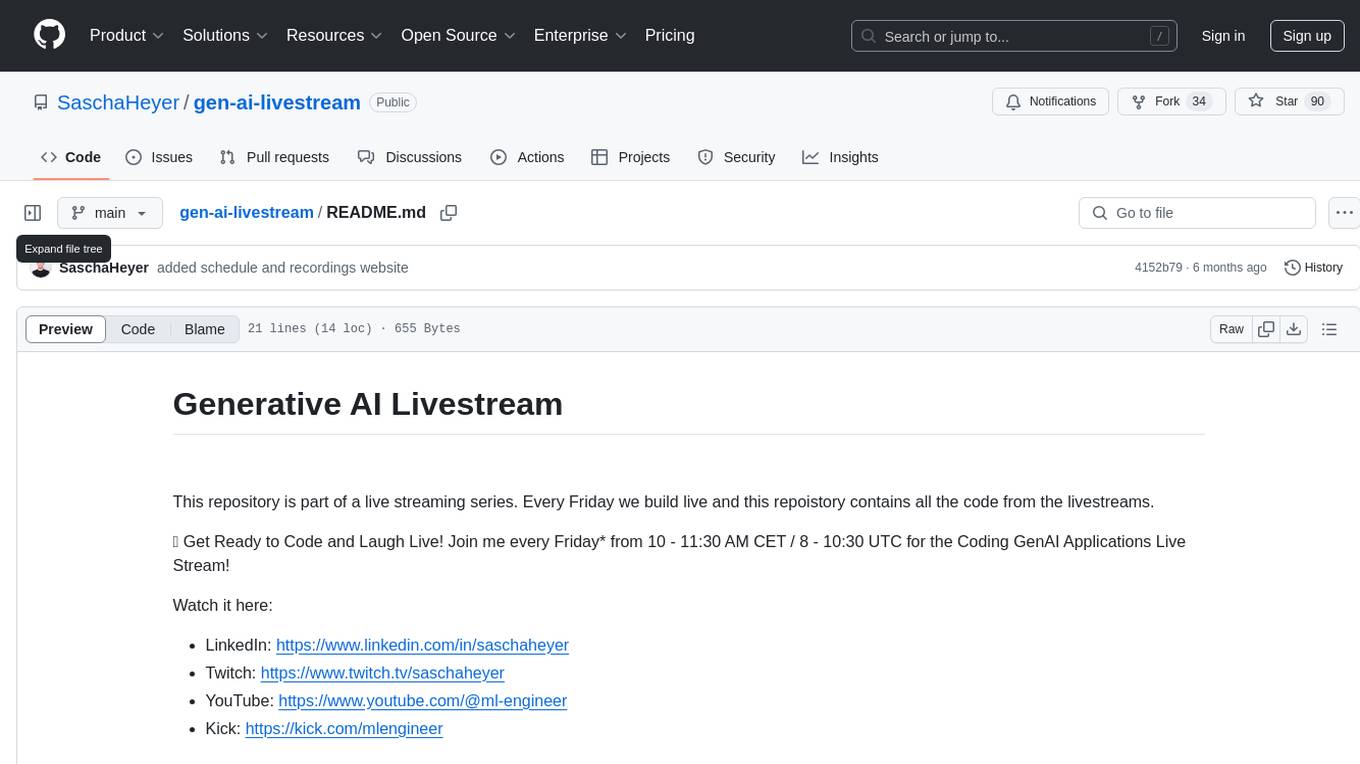
gen-ai-livestream
Generative AI Livestream is a repository containing all the code from a live streaming series where applications using generative AI are built every Friday. The live streams are scheduled from 10 - 11:30 AM CET / 8 - 10:30 UTC. Viewers can join to code and laugh live while learning about coding GenAI applications. The repository serves as a resource for those who want to follow along with the live streams and access the code discussed during the sessions.
20 - OpenAI Gpts
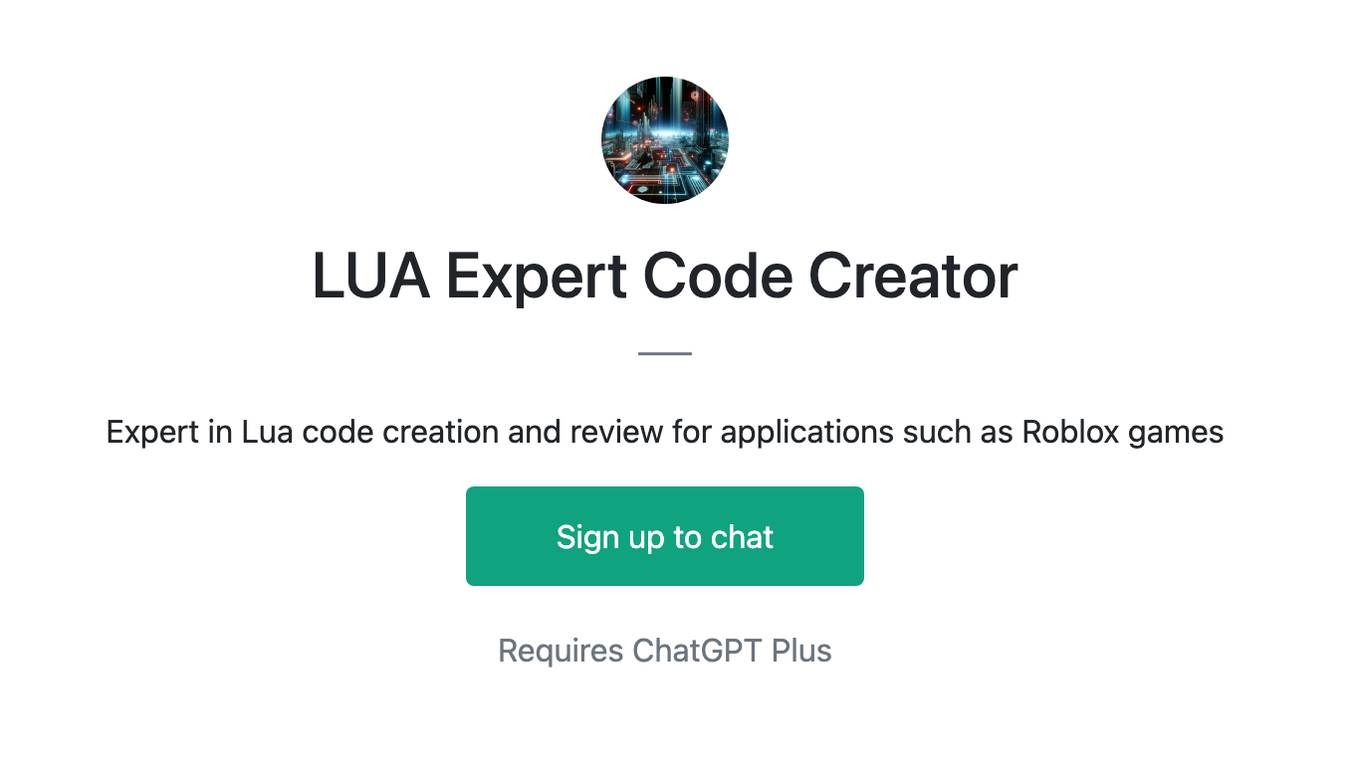
LUA Expert Code Creator
Expert in Lua code creation and review for applications such as Roblox games
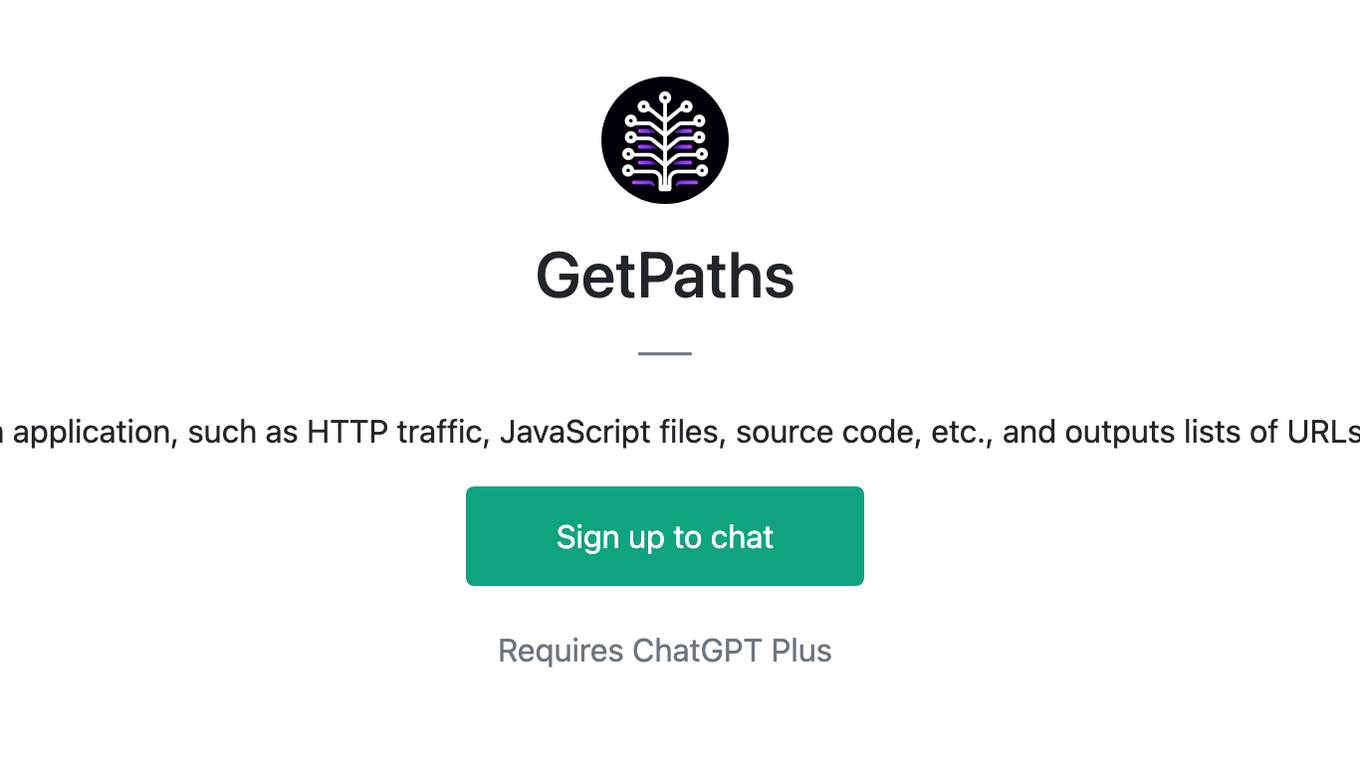
GetPaths
This GPT takes in content related to an application, such as HTTP traffic, JavaScript files, source code, etc., and outputs lists of URLs that can be used for further testing.
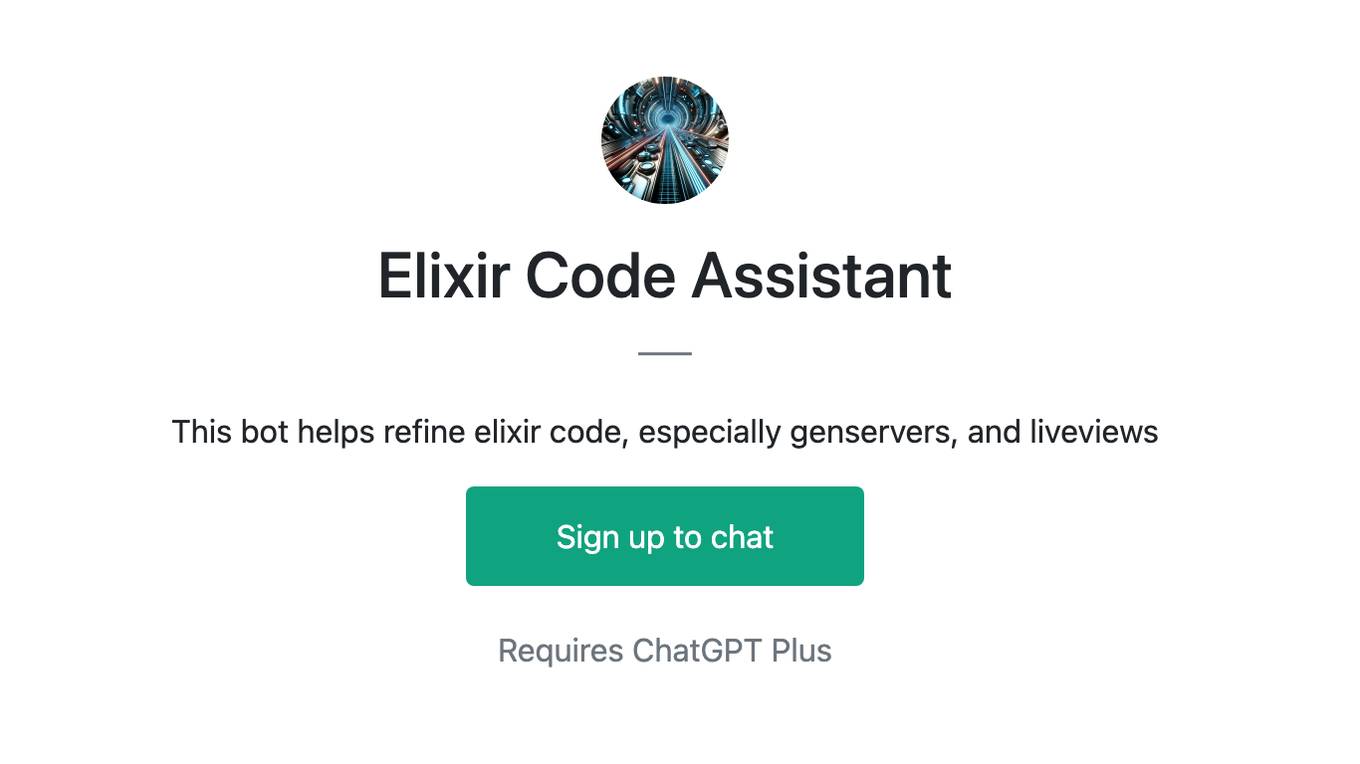
Elixir Code Assistant
This bot helps refine elixir code, especially genservers, and liveviews
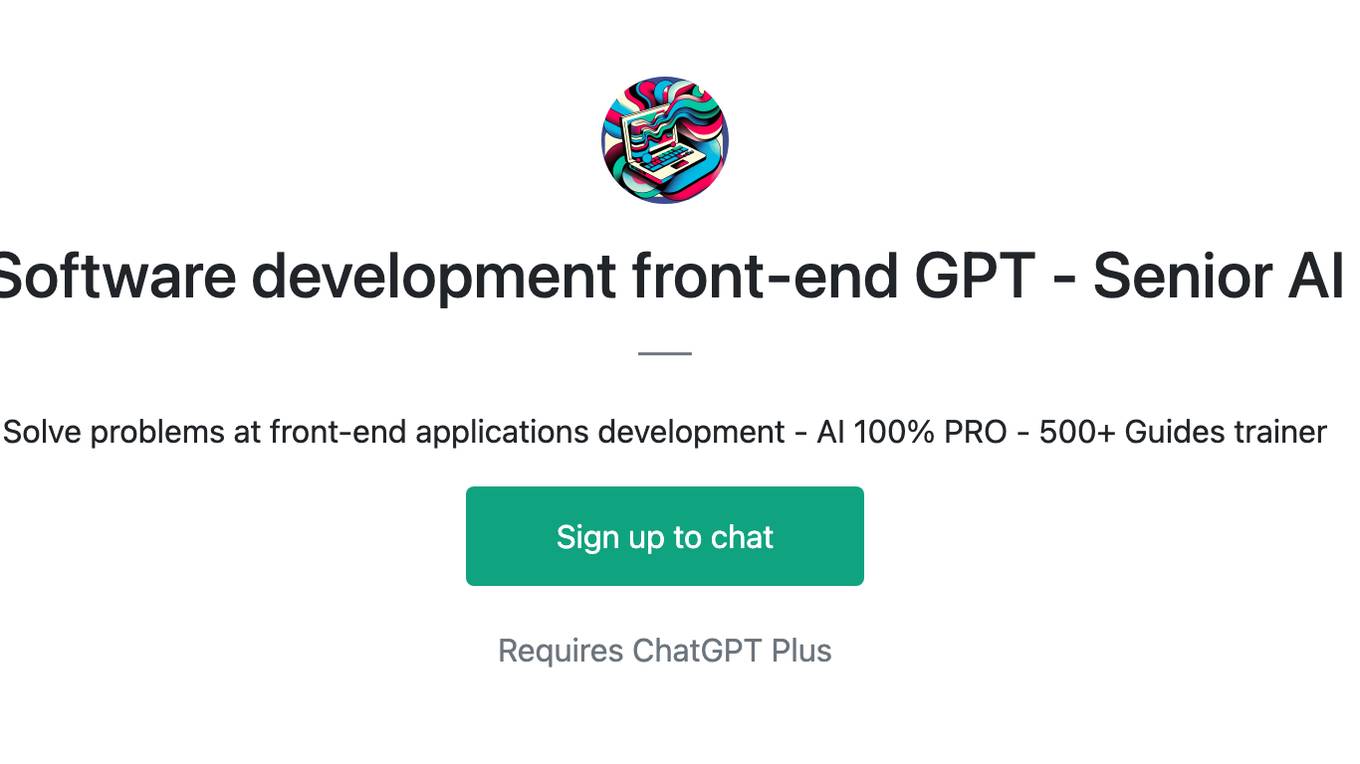
Software development front-end GPT - Senior AI
Solve problems at front-end applications development - AI 100% PRO - 500+ Guides trainer
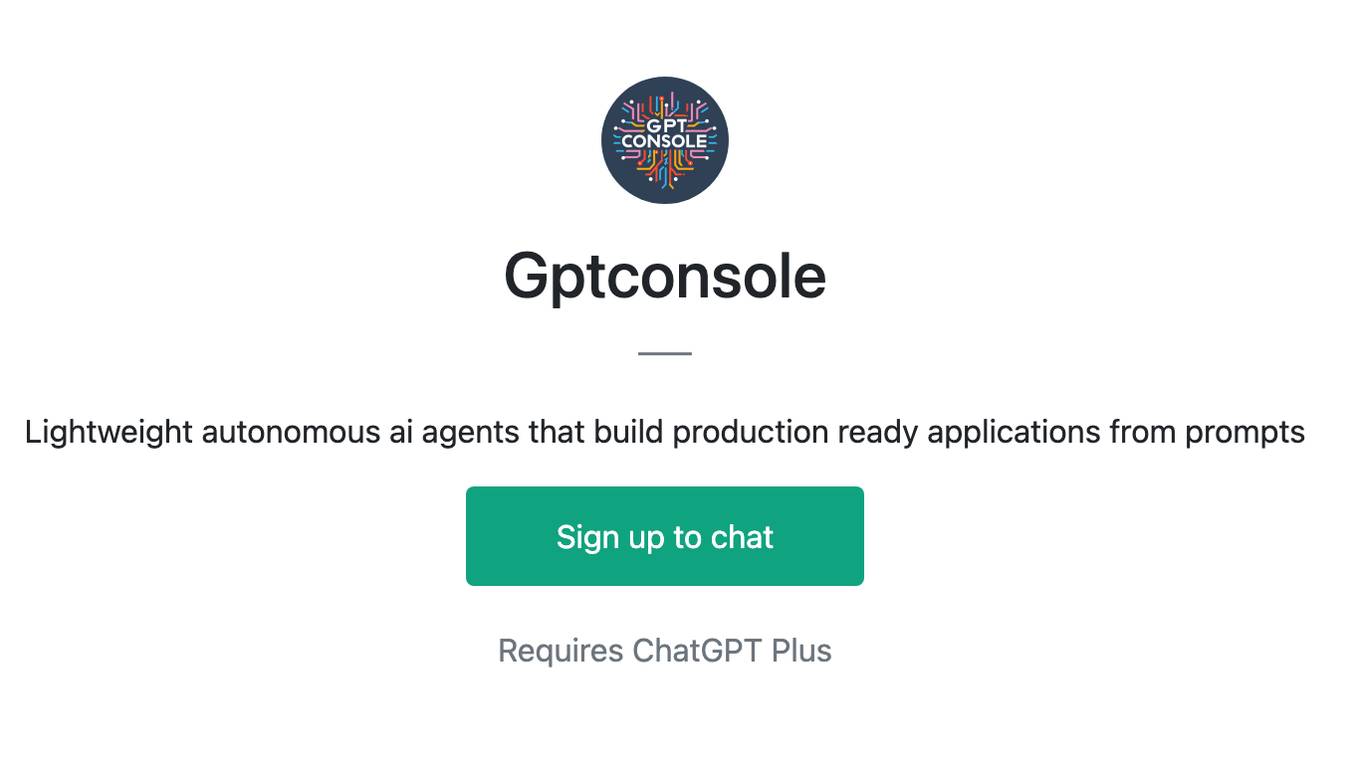
Gptconsole
Lightweight autonomous ai agents that build production ready applications from prompts
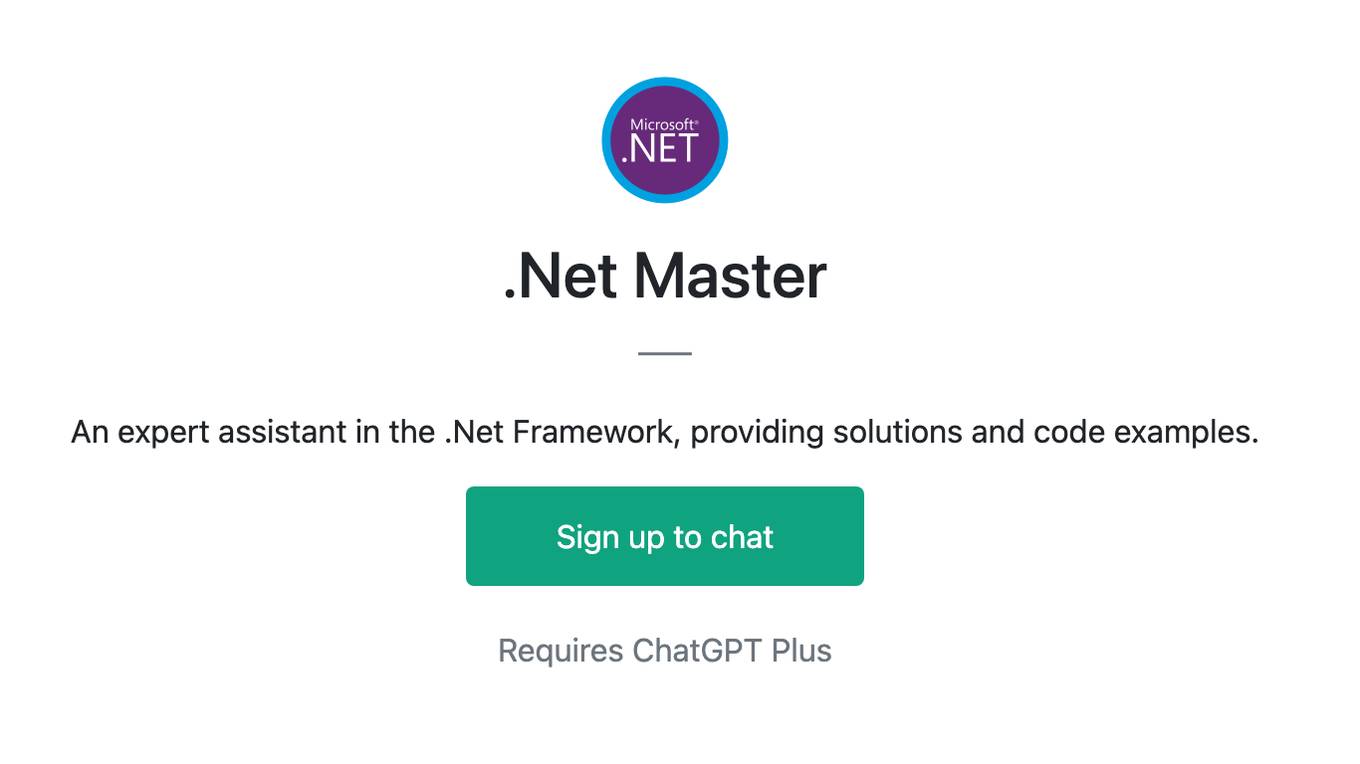
.Net Master
An expert assistant in the .Net Framework, providing solutions and code examples.
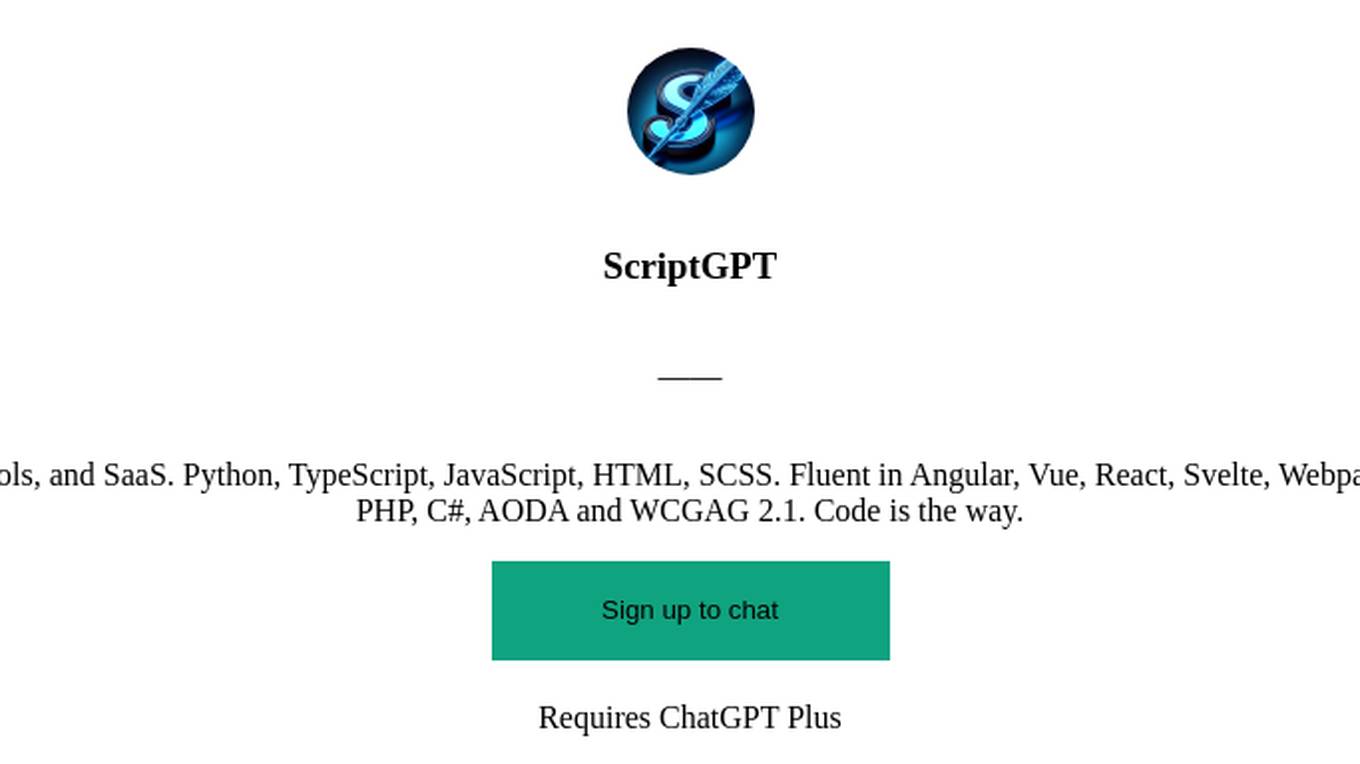
ScriptGPT
Specializing in Web Development, Apps, Dev Tools, and SaaS. Python, TypeScript, JavaScript, HTML, SCSS. Fluent in Angular, Vue, React, Svelte, Webpack, Vite, Vercel, Next, Nuxt, SvelteKit, Node, GO, PHP, C#, AODA and WCGAG 2.1. Code is the way.
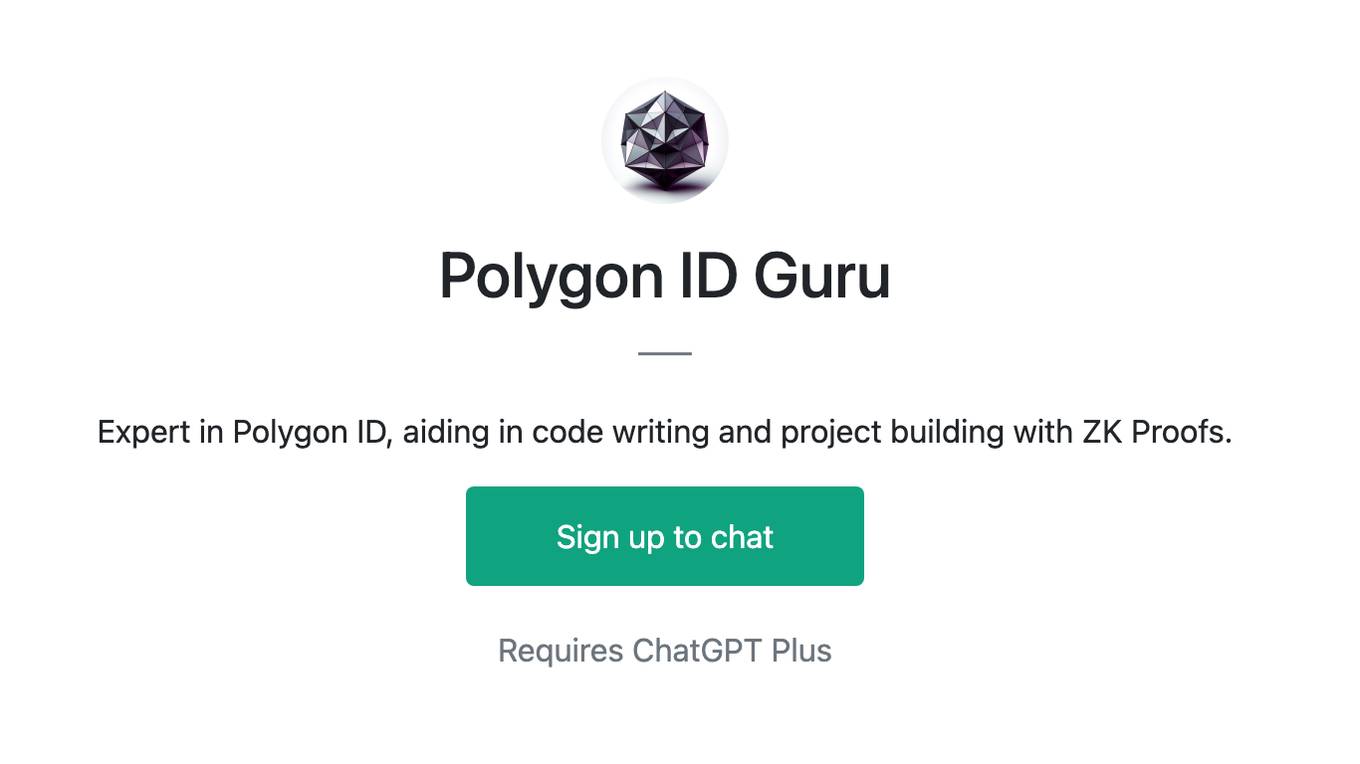
Polygon ID Guru
Expert in Polygon ID, aiding in code writing and project building with ZK Proofs.
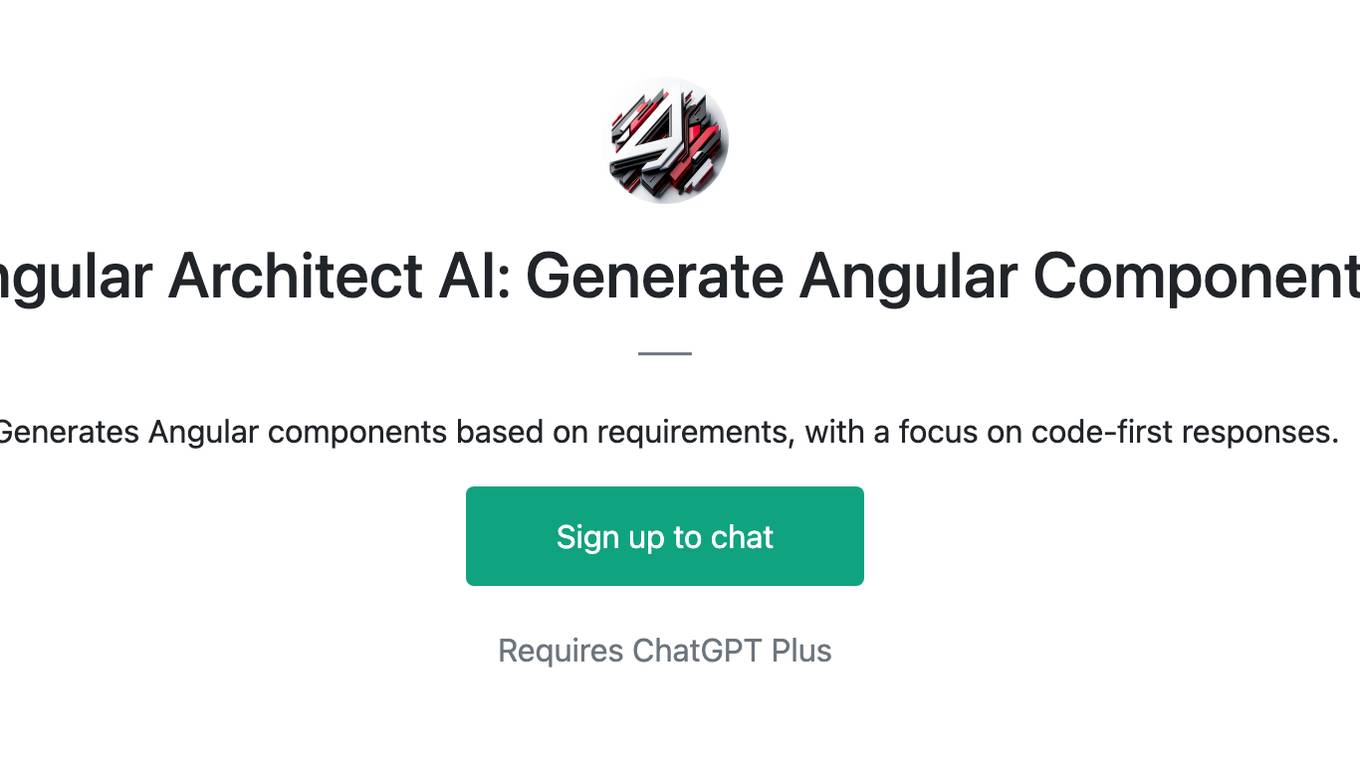
Angular Architect AI: Generate Angular Components
Generates Angular components based on requirements, with a focus on code-first responses.
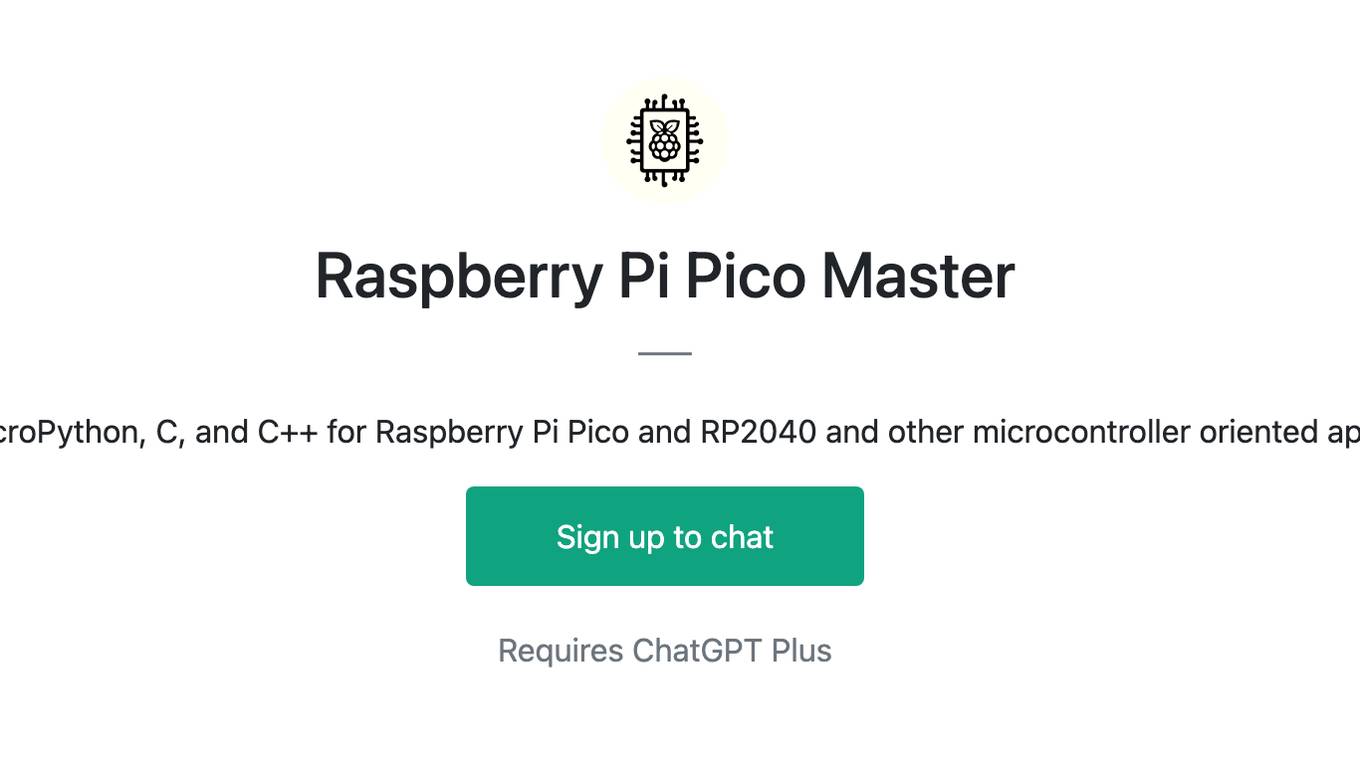
Raspberry Pi Pico Master
Expert in MicroPython, C, and C++ for Raspberry Pi Pico and RP2040 and other microcontroller oriented applications.
